The Baltimore Sun’s weekly bestseller lists of fiction, non-fiction, biography, lifestyle, political, children’s and young adult books are compiled by staff members of Skyhorse Publishing based on publishing houses’, booksellers’, online retailers’ and other sources’ sales data covering the week ending June 1. The reviews and recommendations are compiled by Skyhorse Publishing staff. The Sun welcomes suggestions on local authors to feature via email at books@baltsun.com.
As a participant in Bookshop.org’s affiliate program, The Baltimore Sun earns a small commission from qualifying purchases through affiliate links on this page.
Bestsellers
Fiction
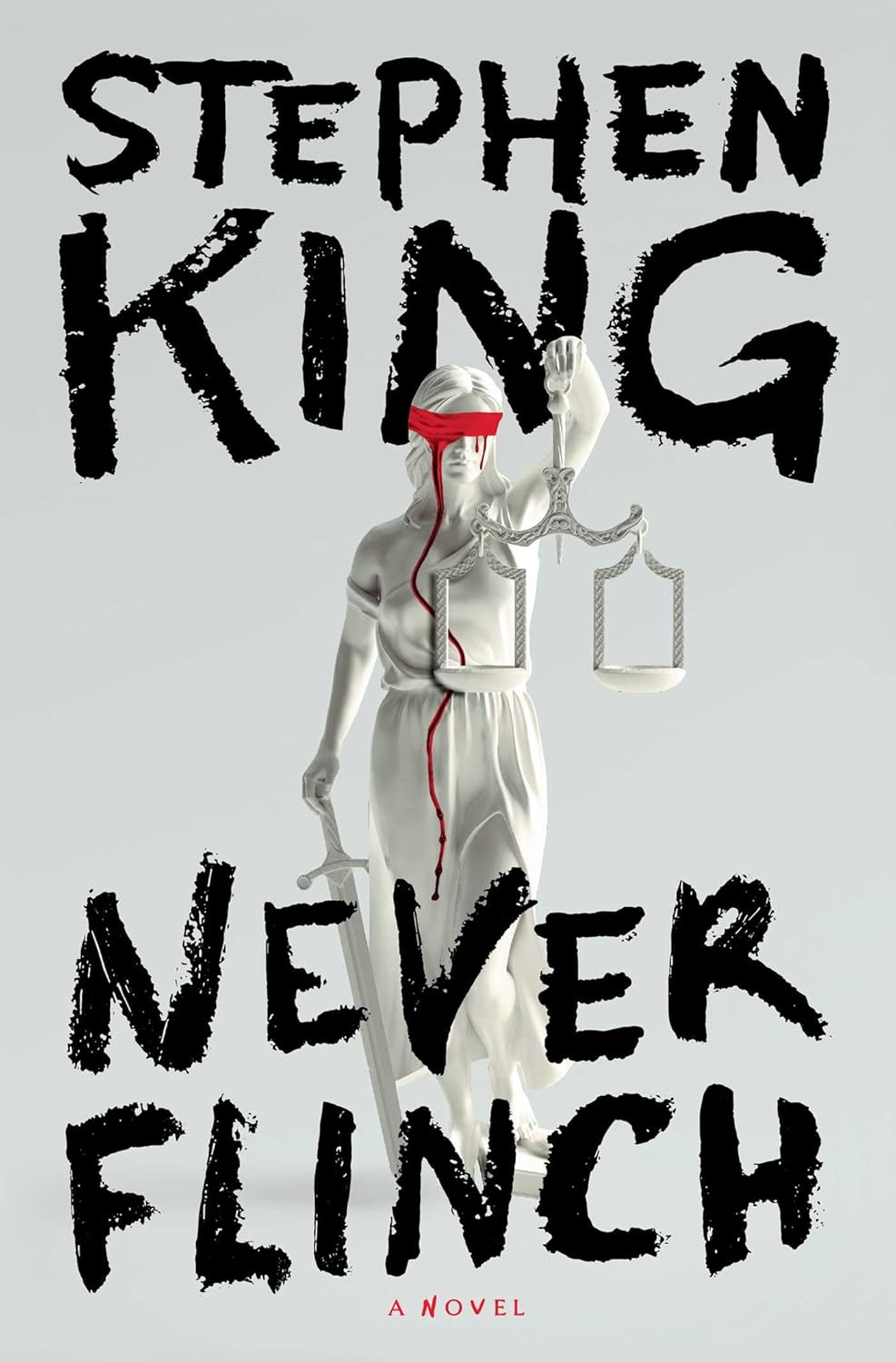 Never Flinch
Never Flinch
Stephen King
Scribner (May 27, 2025)
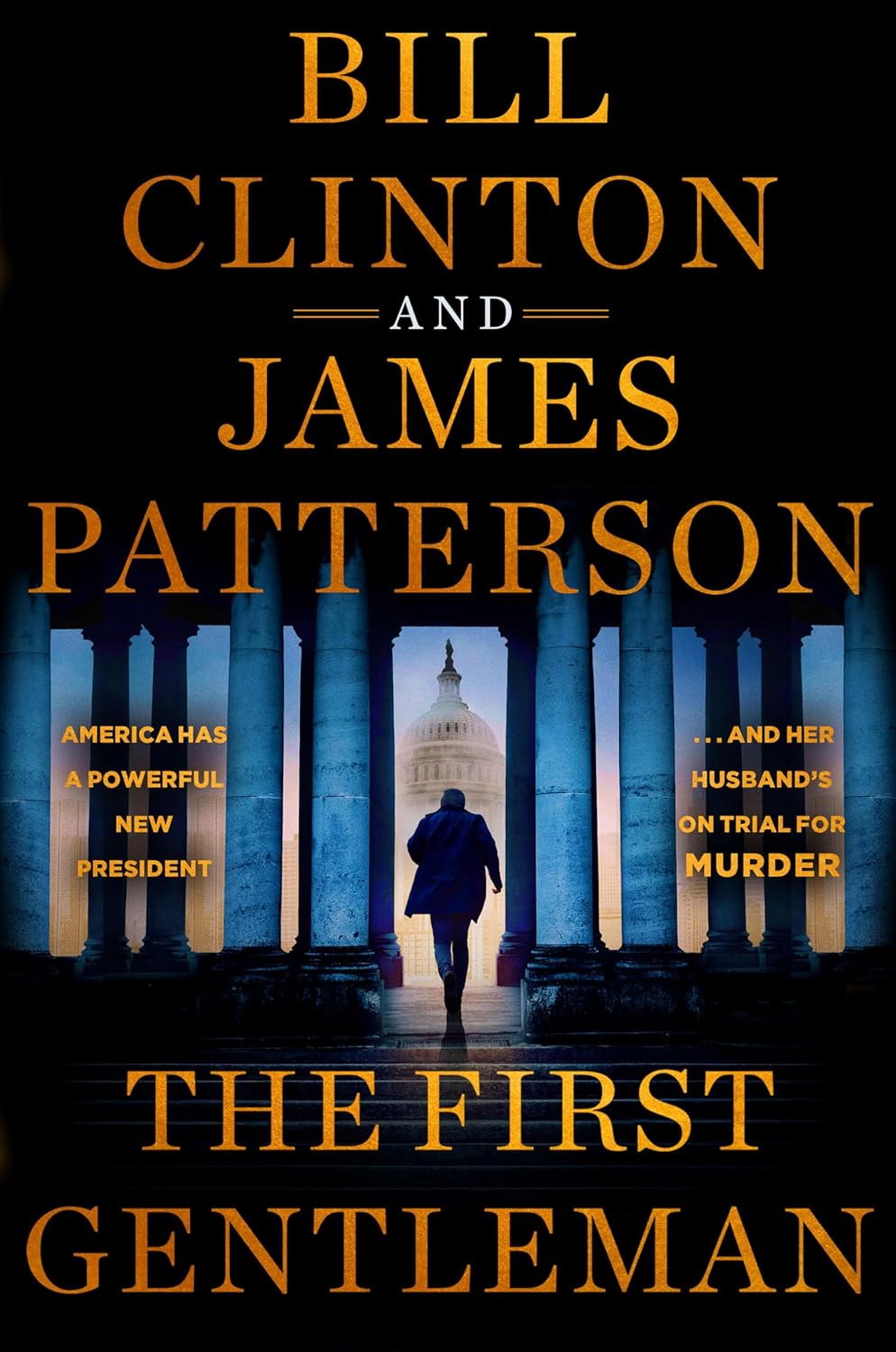 The First Gentleman: A Thriller
The First Gentleman: A Thriller
Bill Clinton and James Patterson
Little, Brown and Company (June 2, 2025)
The President of the United States is up for reelection.
Her husband is on trial for murder.
Is the First Gentleman a killer?
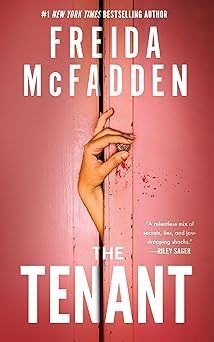 The Tenant
The Tenant
Freida McFadden
Poisoned Pen Press (May 6, 2025)
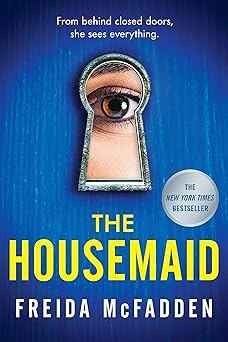 The Housemaid
The Housemaid
Freida McFadden
Grand Central Publishing (August 23, 2022)
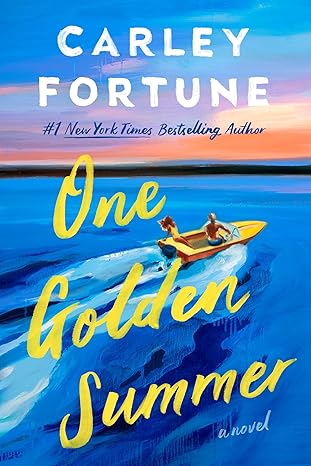 One Golden Summer
One Golden Summer
Carley Fortune
Berkley (May 6, 2025)
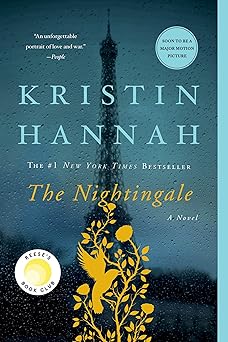 The Nightingale: A Novel
The Nightingale: A Novel
Kristin Hannah
St. Martin’s Griffin (April 25, 2017)
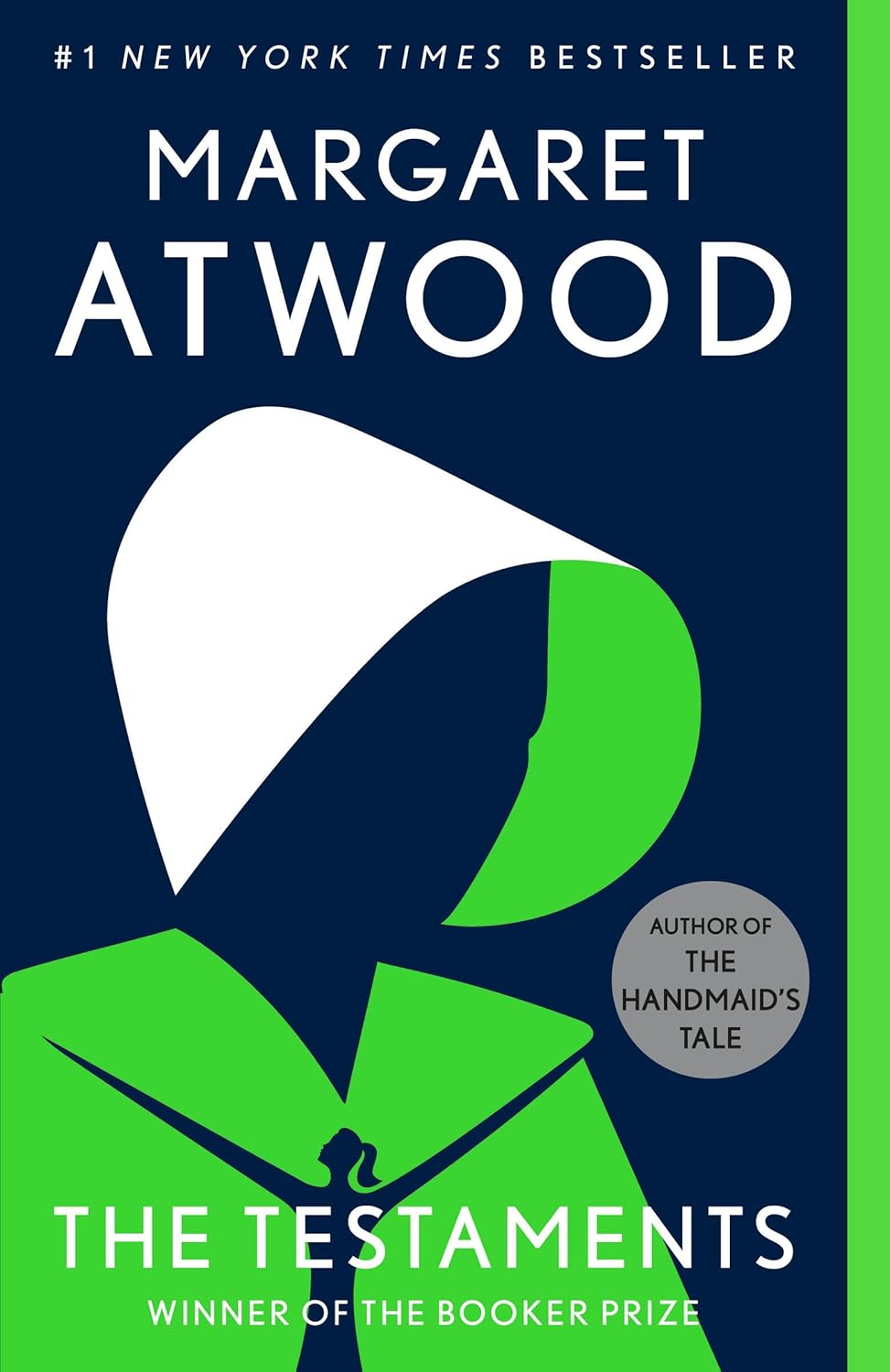 The Testaments: A Novel
The Testaments: A Novel
Margaret Atwood
Knopf Doubleday (September 1, 2020)
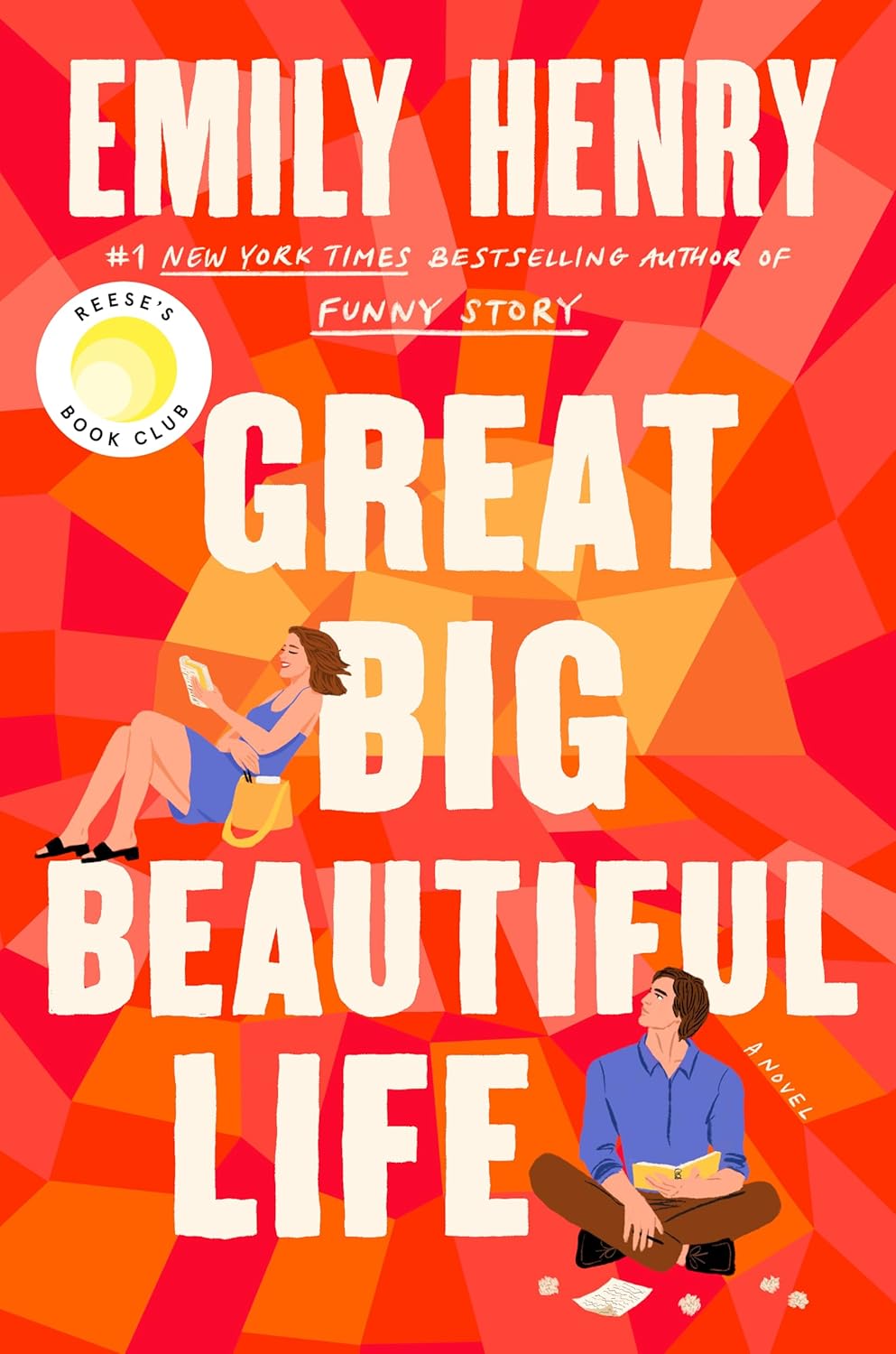 Great Big Beautiful Life: Reese’s Book Club
Great Big Beautiful Life: Reese’s Book Club
Emily Henry
Berkley (April 22, 2025)
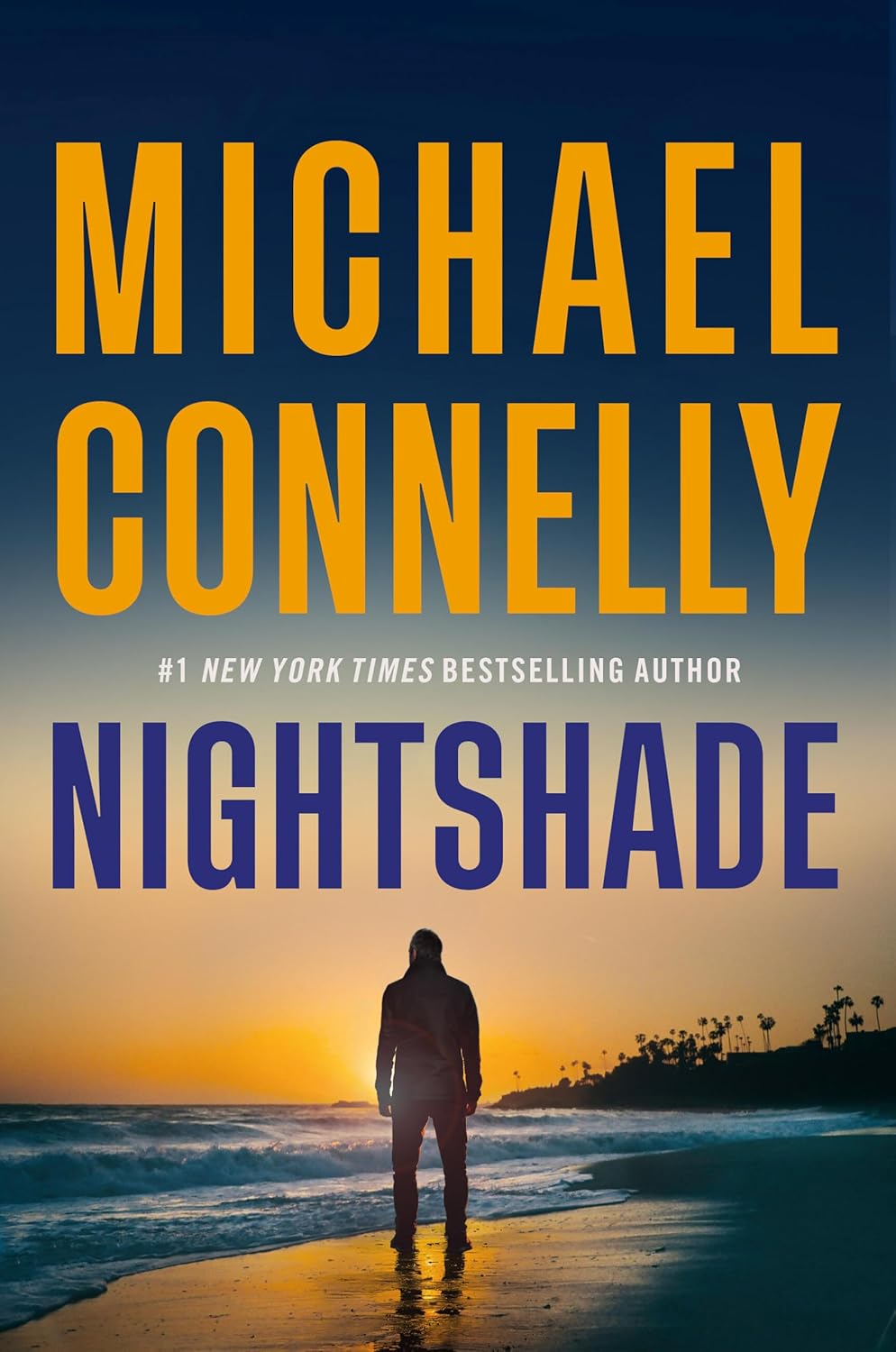 Nightshade
Nightshade
Michael Connelly
Little, Brown and Company (May 20, 2025)
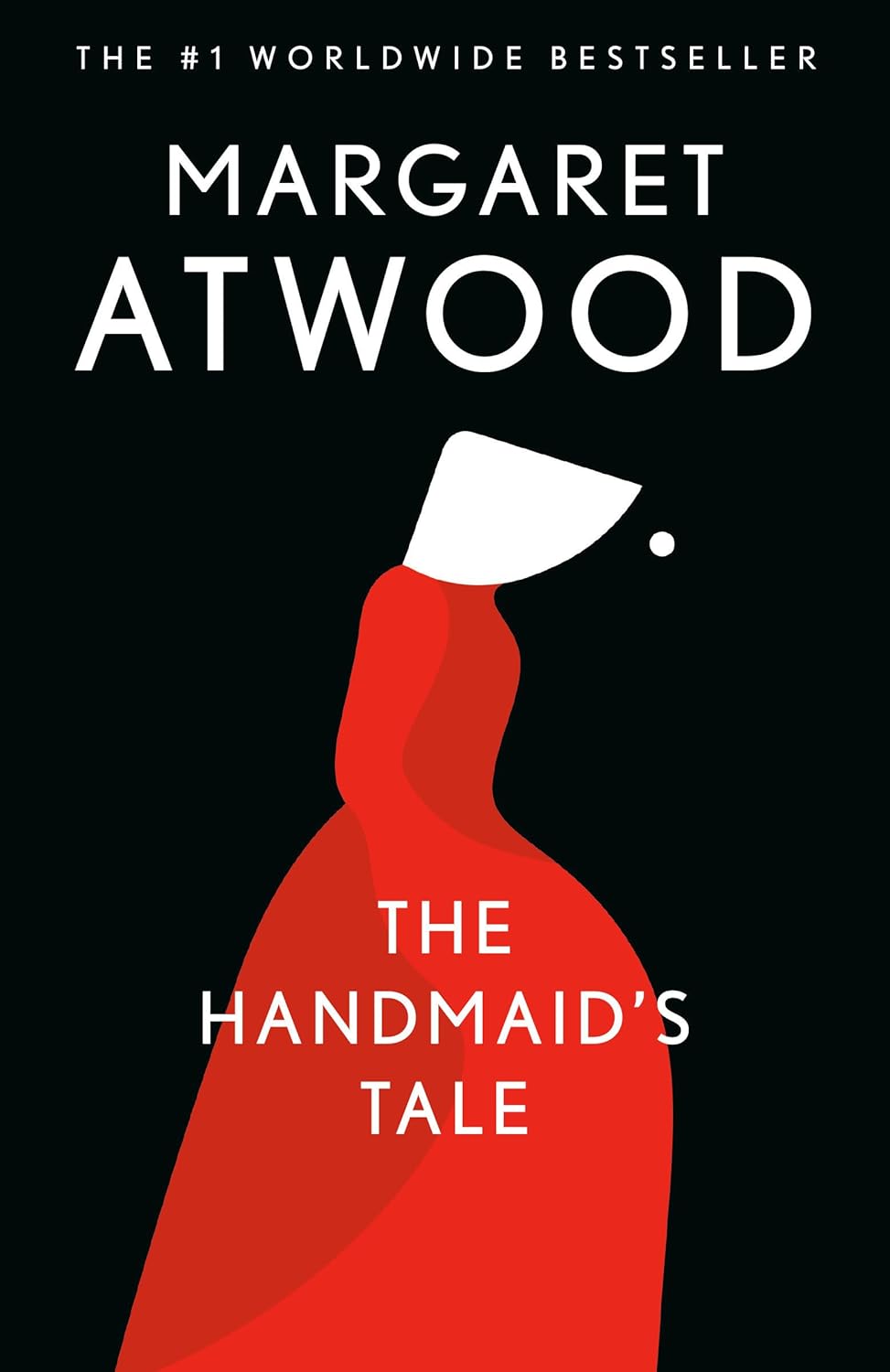 The Handmaid’s Tale
The Handmaid’s Tale
Margaret Atwood
Vintage (March 16, 1998)
Non-fiction: Biography & autobiography
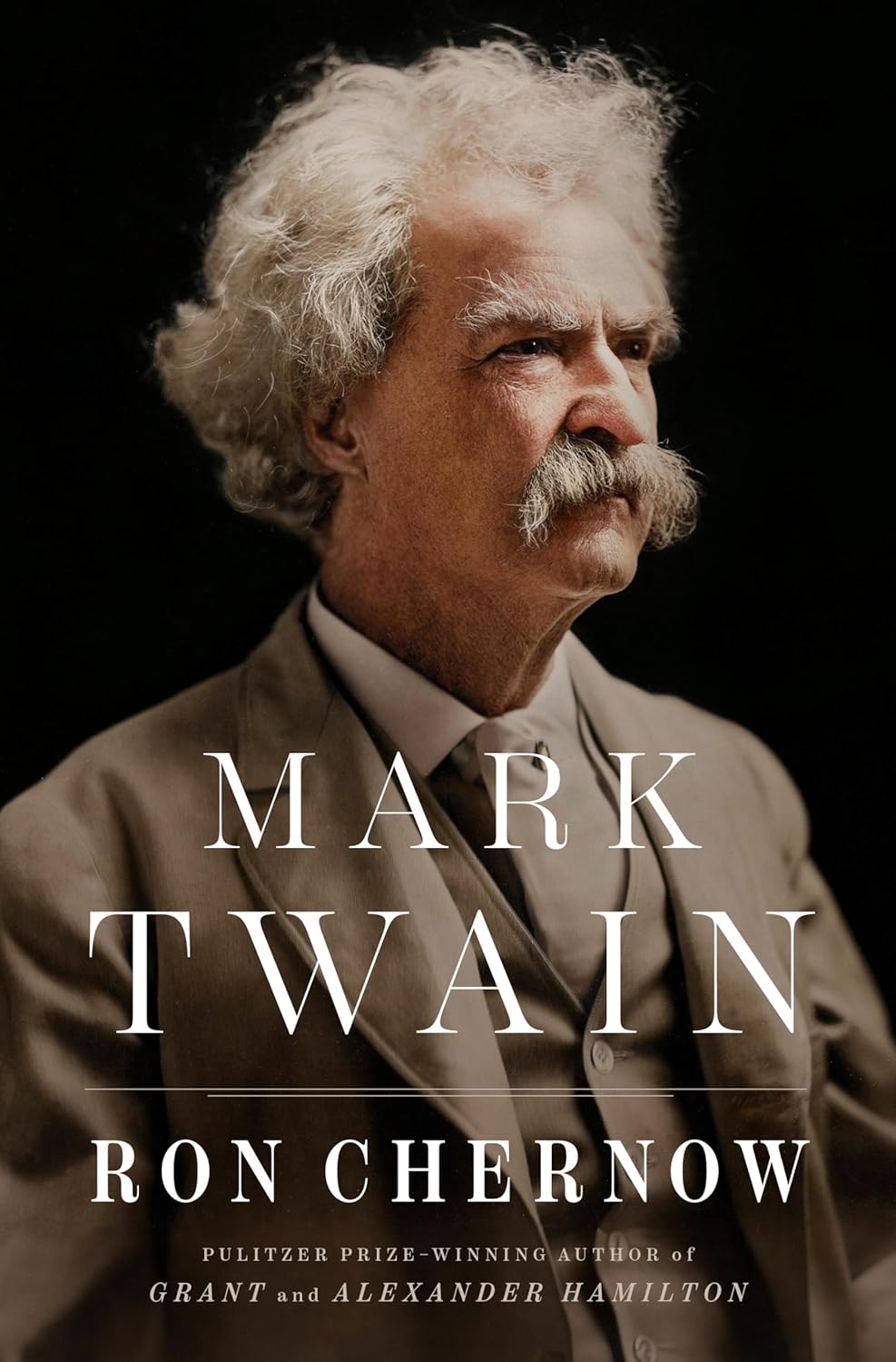 Mark Twain
Mark Twain
Ron Chernow
Penguin Press (May 13, 2025)
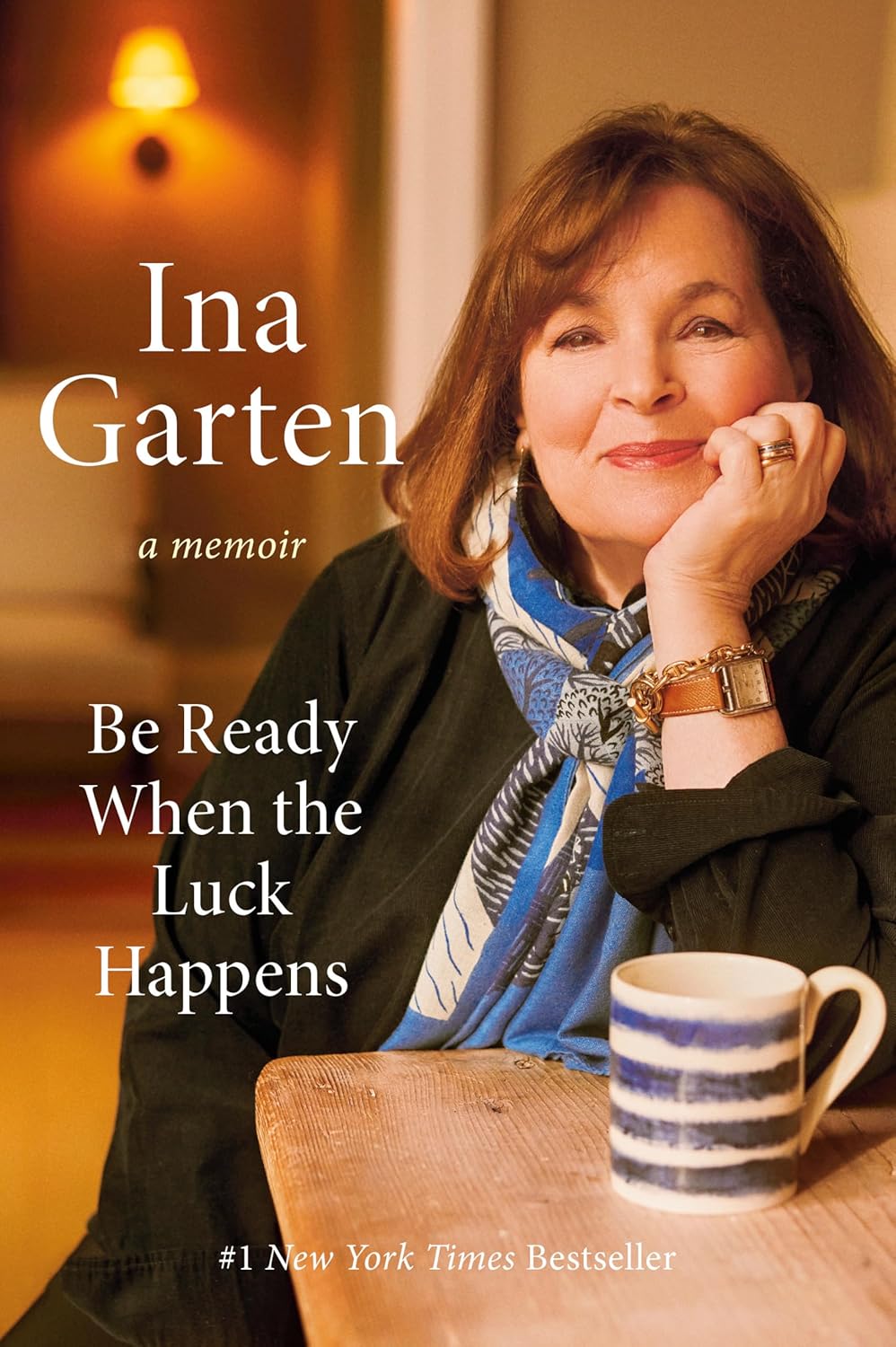 Be Ready When the Luck Happens
Be Ready When the Luck Happens
Ina Garten
Crown (October 1, 2024)
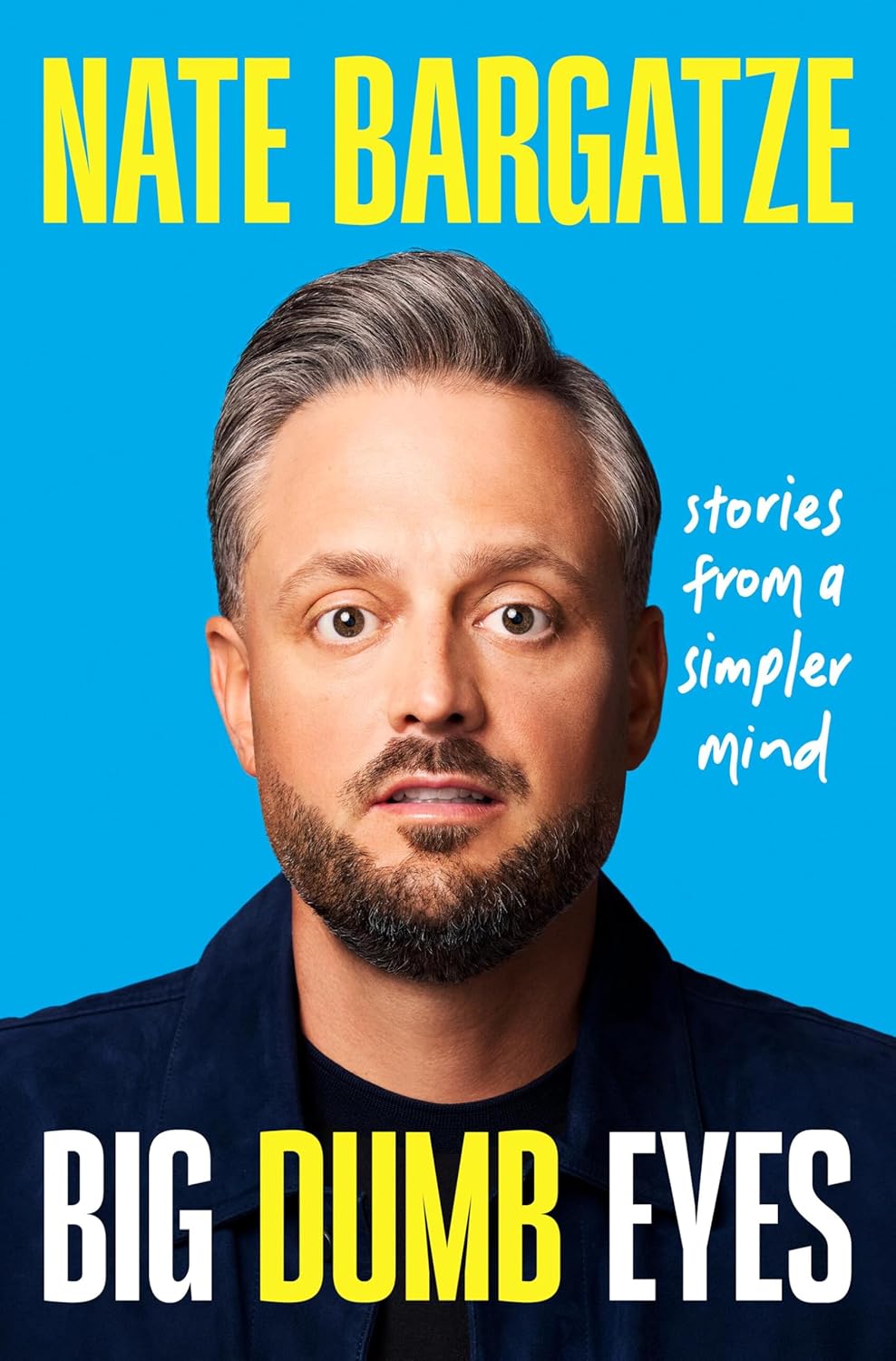 Big Dumb Eyes: Stories from a Simpler Mind
Big Dumb Eyes: Stories from a Simpler Mind
Nate Bargatze
Grand Central Publishing (May 6, 2025)
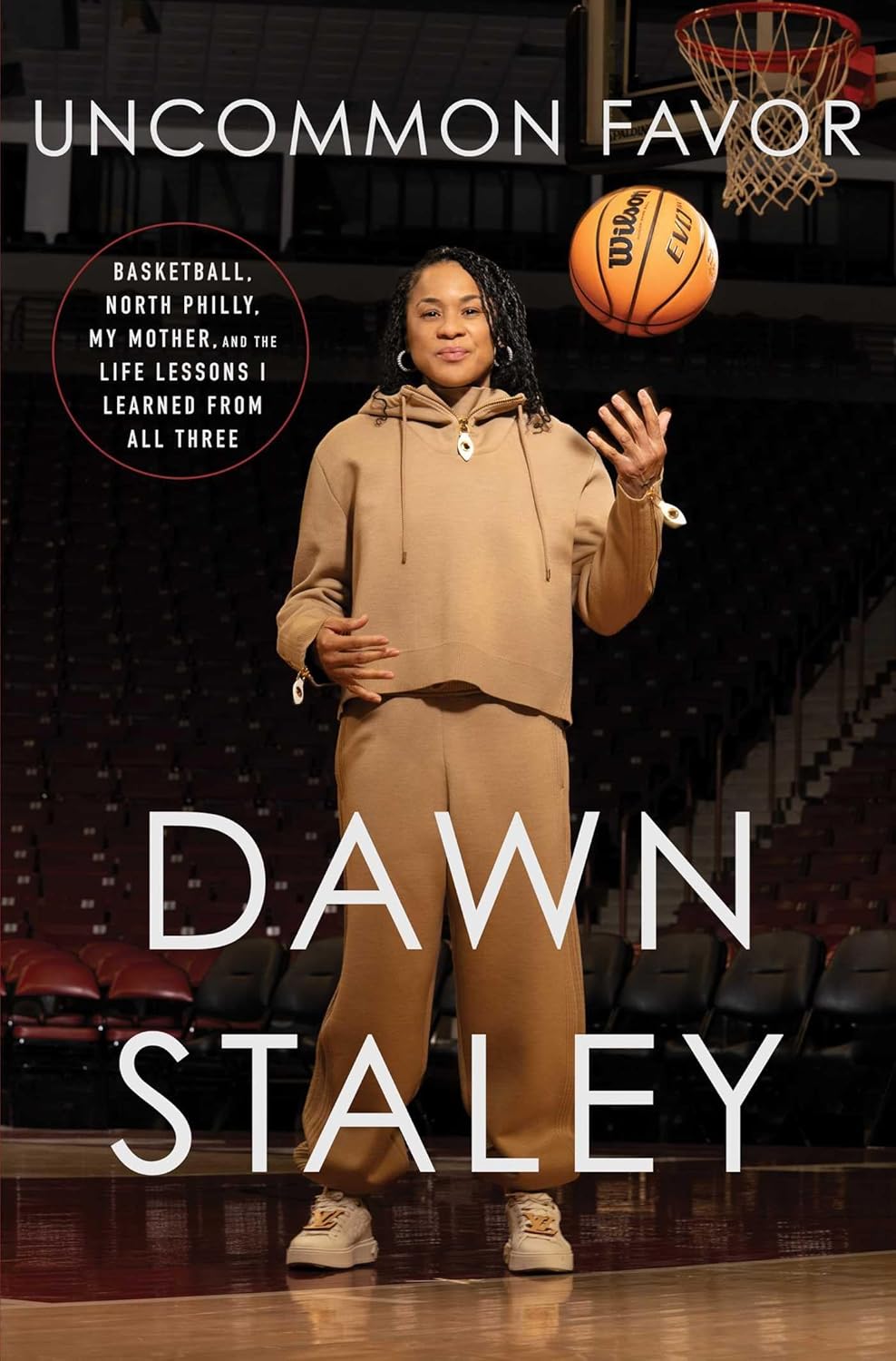 Uncommon Favor: Basketball, North Philly, My Mother, and the Life Lessons I Learned from All Three
Uncommon Favor: Basketball, North Philly, My Mother, and the Life Lessons I Learned from All Three
Dawn Staley
Atria/Black Privilege Publishing (May 20, 2025)
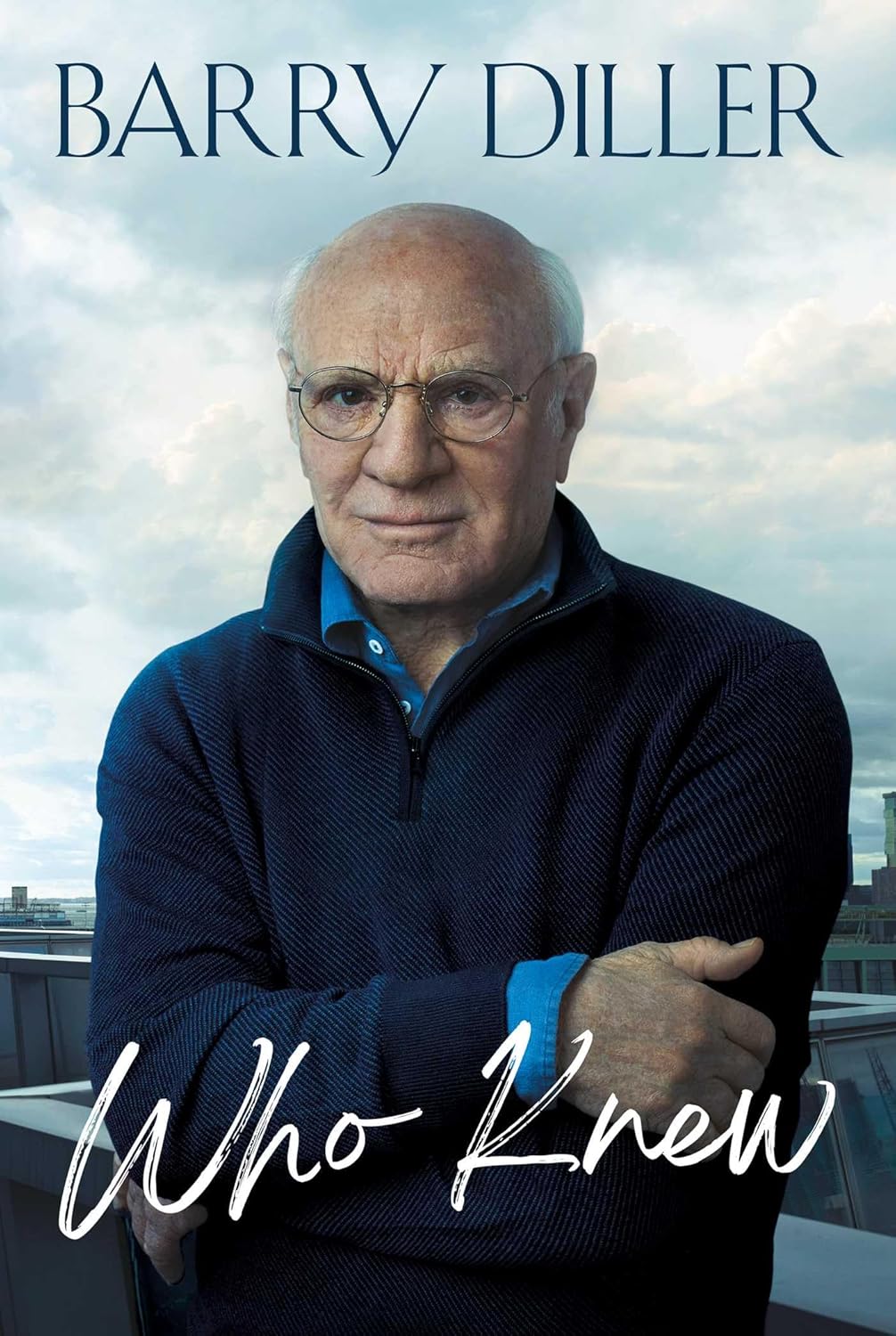 Who Knew
Who Knew
Barry Diller
Simon & Schuster (May 20, 2025)
Non-fiction: Self-help & advice
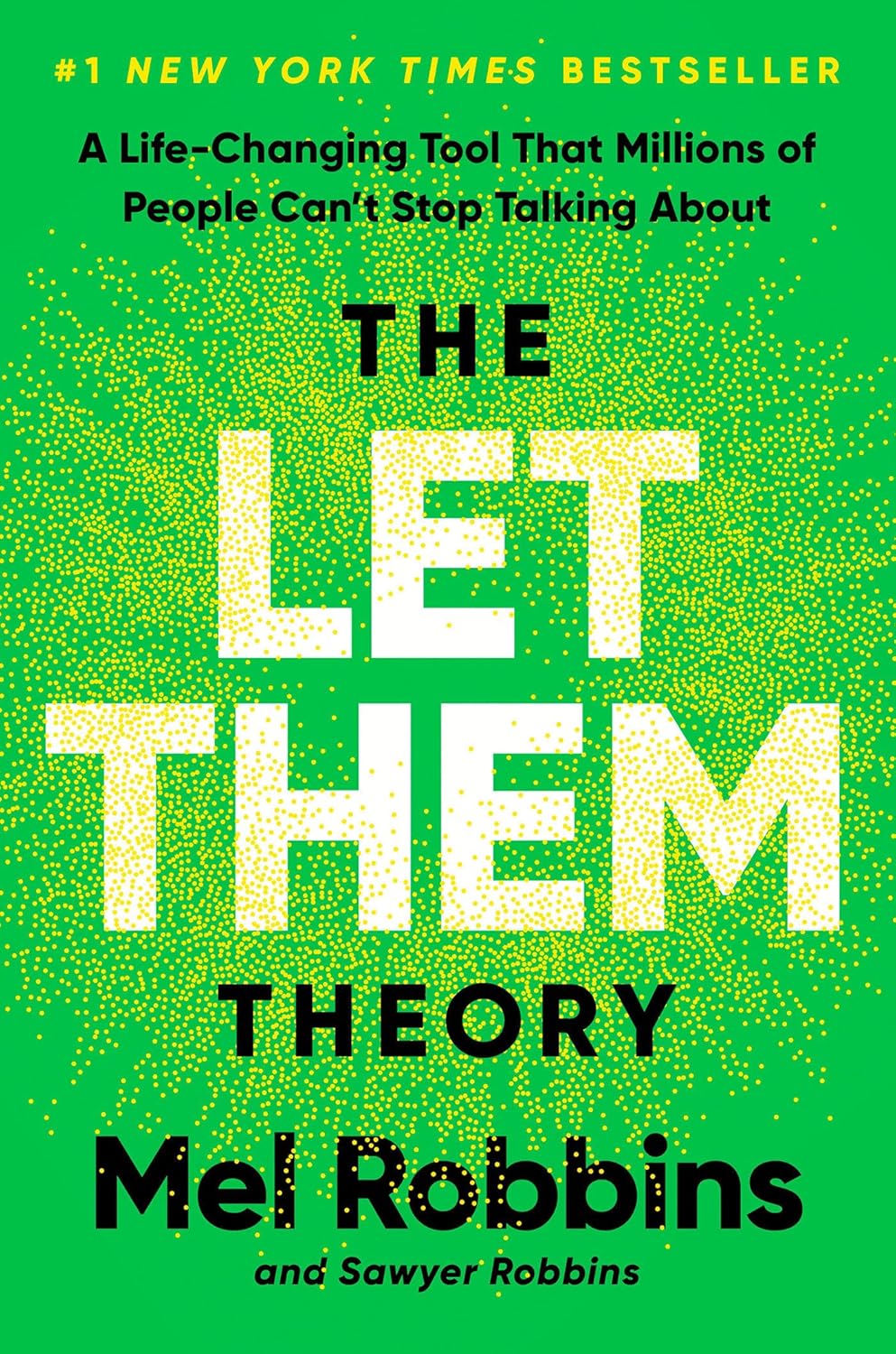 The Let Them Theory
The Let Them Theory
Mel Robbins and Sawyer Robbins
Hay House LLC (December 24, 2024)
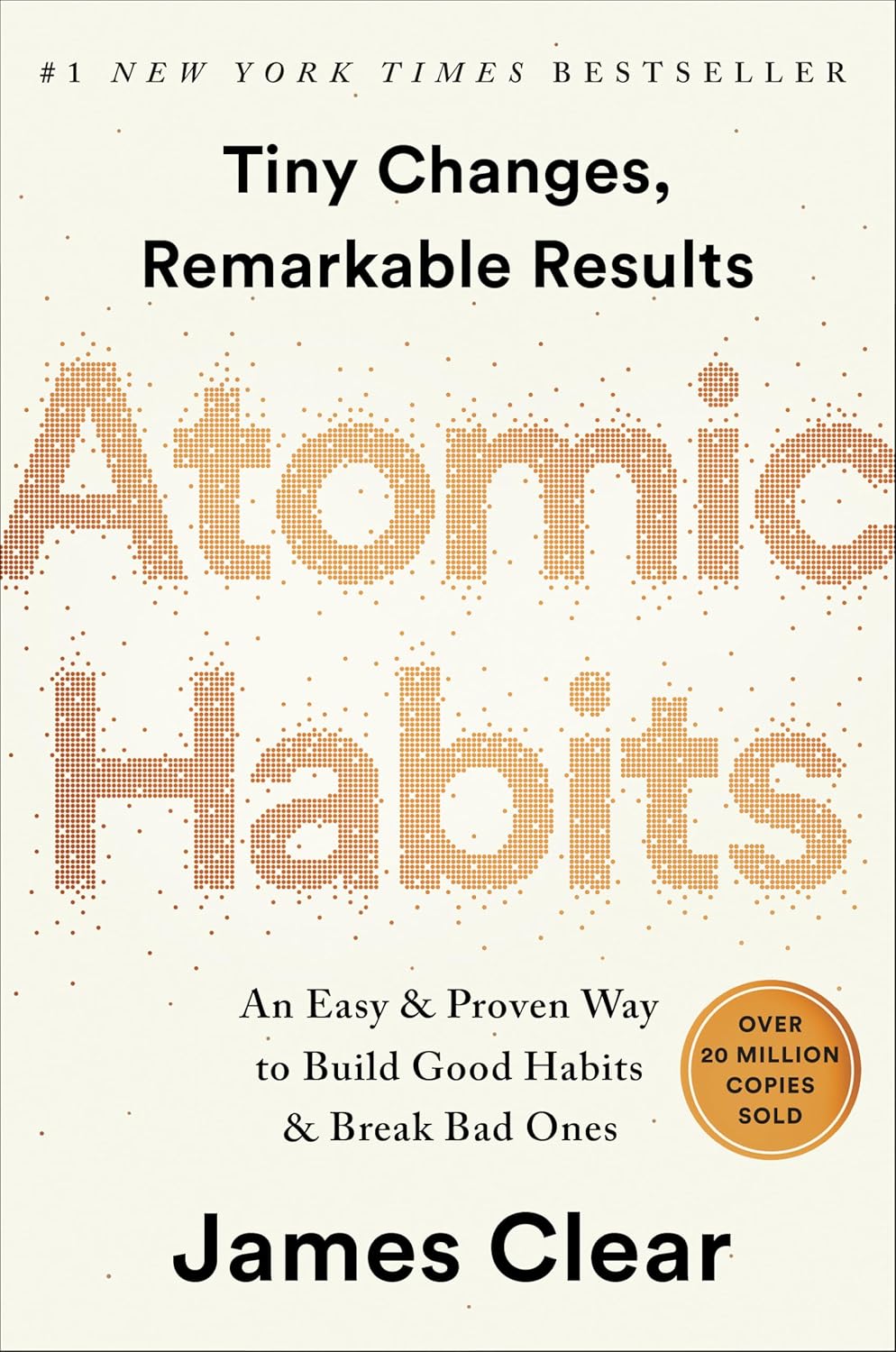 Atomic Habits
Atomic Habits
James Clear
Avery (October 16, 2018)
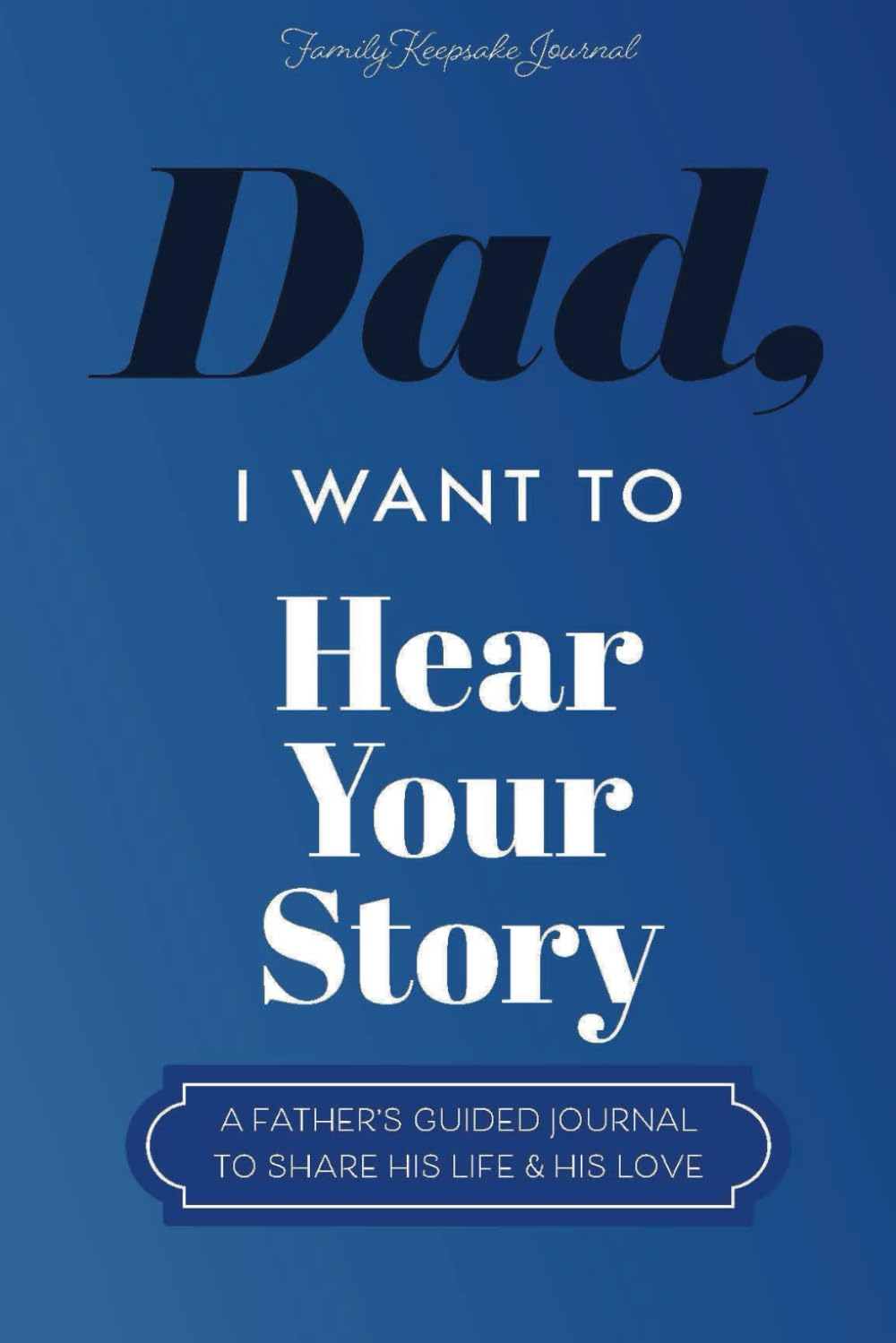 Dad, I Want to Hear Your Story
Dad, I Want to Hear Your Story
Jeffrey Mason
Independently Published (May 27, 2019)
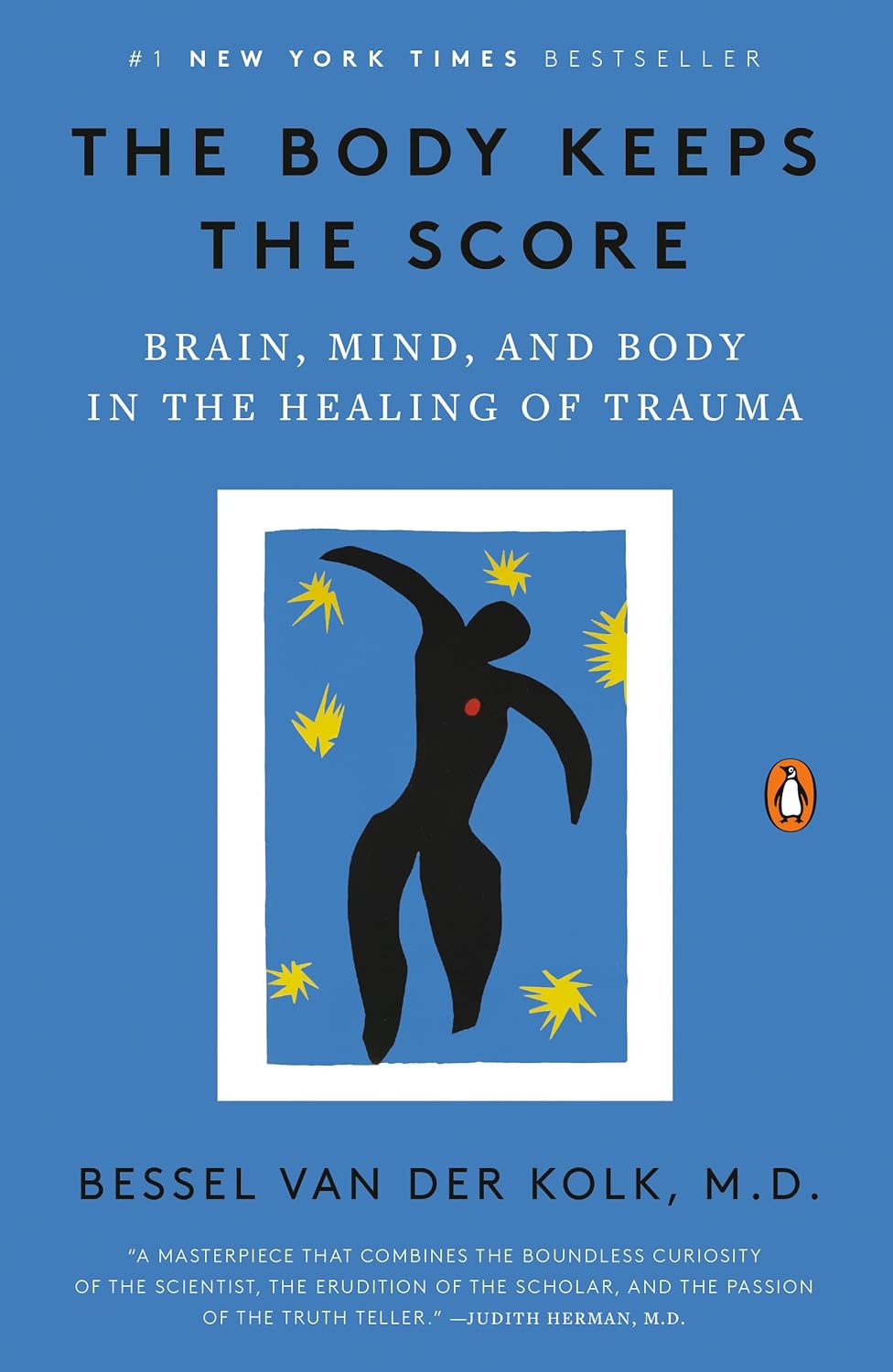 The Body Keeps the Score: Brain, Mind, and Body in the Healing of Trauma
The Body Keeps the Score: Brain, Mind, and Body in the Healing of Trauma
Bessel van der Kolk M.D.
Penguin Books (September 8, 2015)
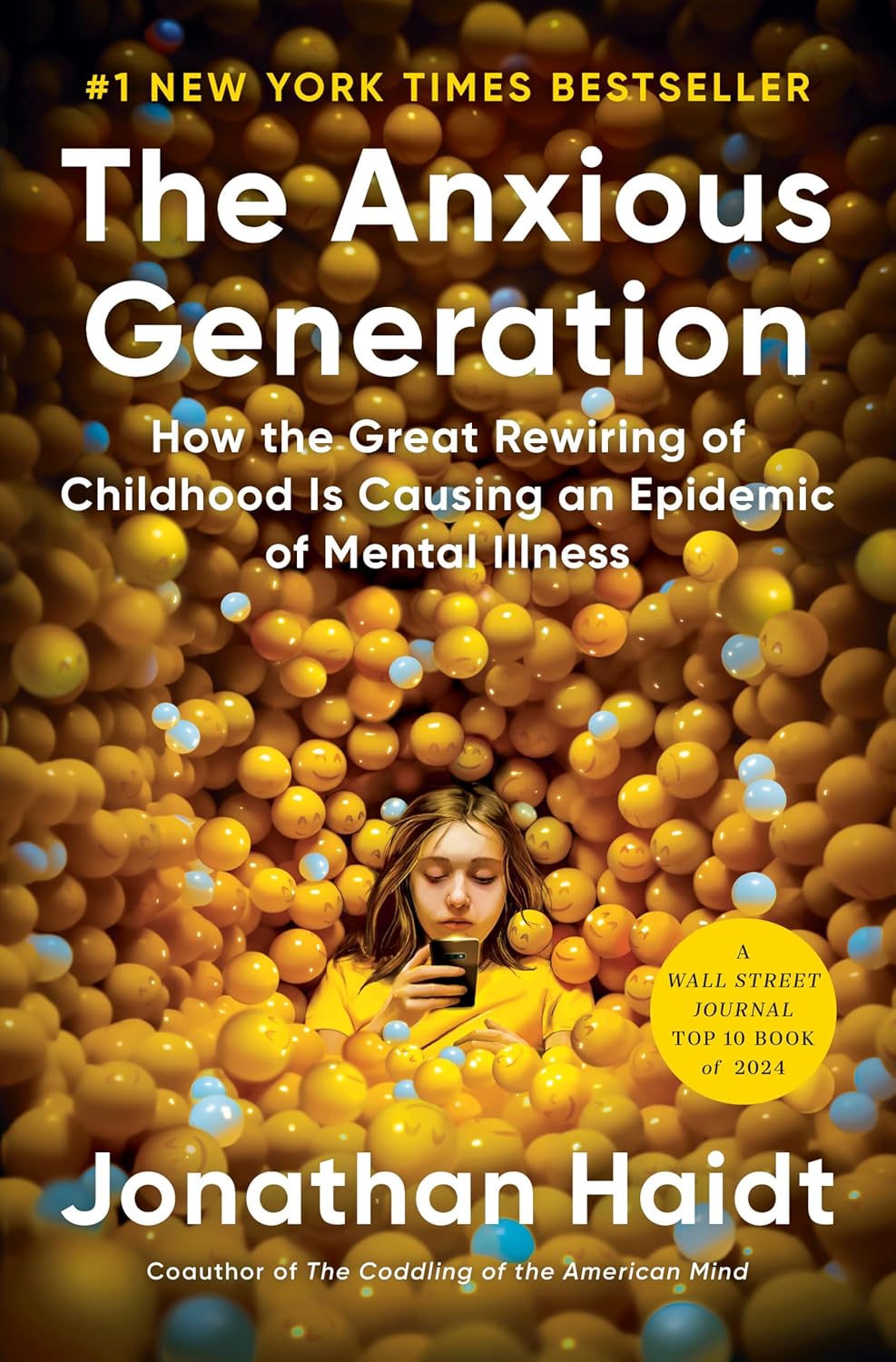 The Anxious Generation: How the Great Rewiring of Childhood Is Causing an Epidemic of Mental Illness
The Anxious Generation: How the Great Rewiring of Childhood Is Causing an Epidemic of Mental Illness
Jonathan Haidt
Penguin Press (March 26, 2025)
Non-fiction: Lifestyle
 The Wishbone Kitchen Cookbook
The Wishbone Kitchen Cookbook
Meredith Hayden
Ten Speed Press (May 6, 2025)
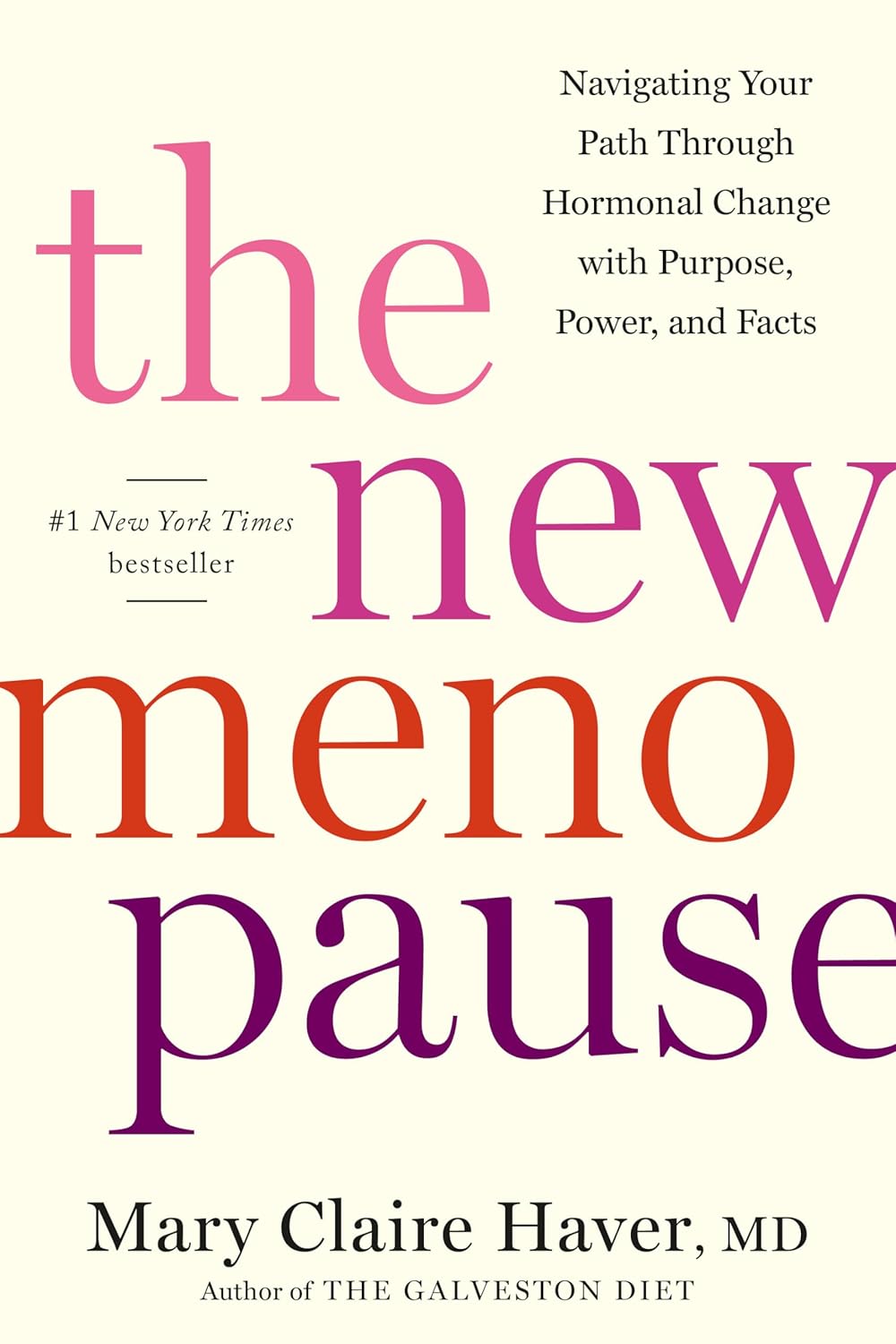 The New Menopause
The New Menopause
Mary Claire Haver, MD
Rodale Books (April 30, 2024)
 The Book of Unusual Knowledge
The Book of Unusual Knowledge
Publications International, Ltd.
Publications International, Ltd. (April 1, 2012)
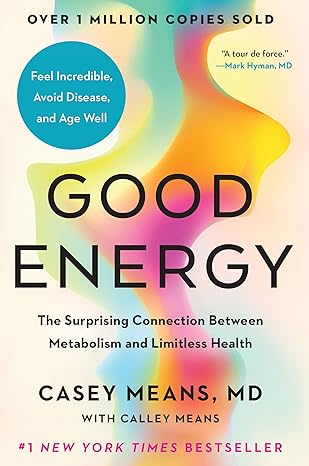 Good Energy: The Surprising Connection Between Metabolism and Limitless Health
Good Energy: The Surprising Connection Between Metabolism and Limitless Health
Casey Means, MD
Avery (May 14, 2024)
Good Energy offers a new, cutting-edge understanding of the true cause of illness that until now has remained hidden. It will help you optimize your ability to live well and stay well at every age.
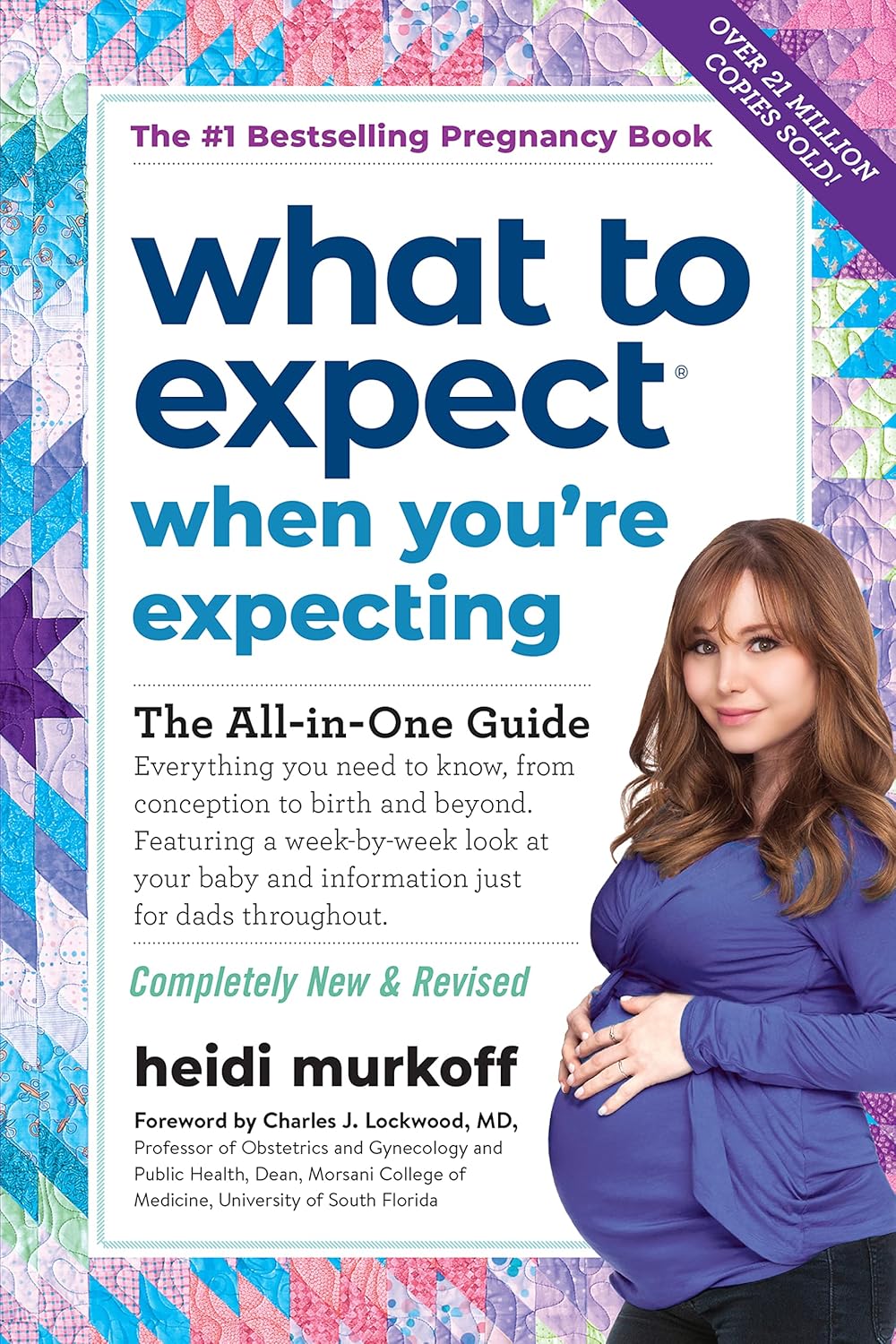 What to Expect When You’re Expecting: (Updated in 2024)
What to Expect When You’re Expecting: (Updated in 2024)
Heidi Murkoff
Workman Publishing Company (May 31, 2016)
Left, right, and center
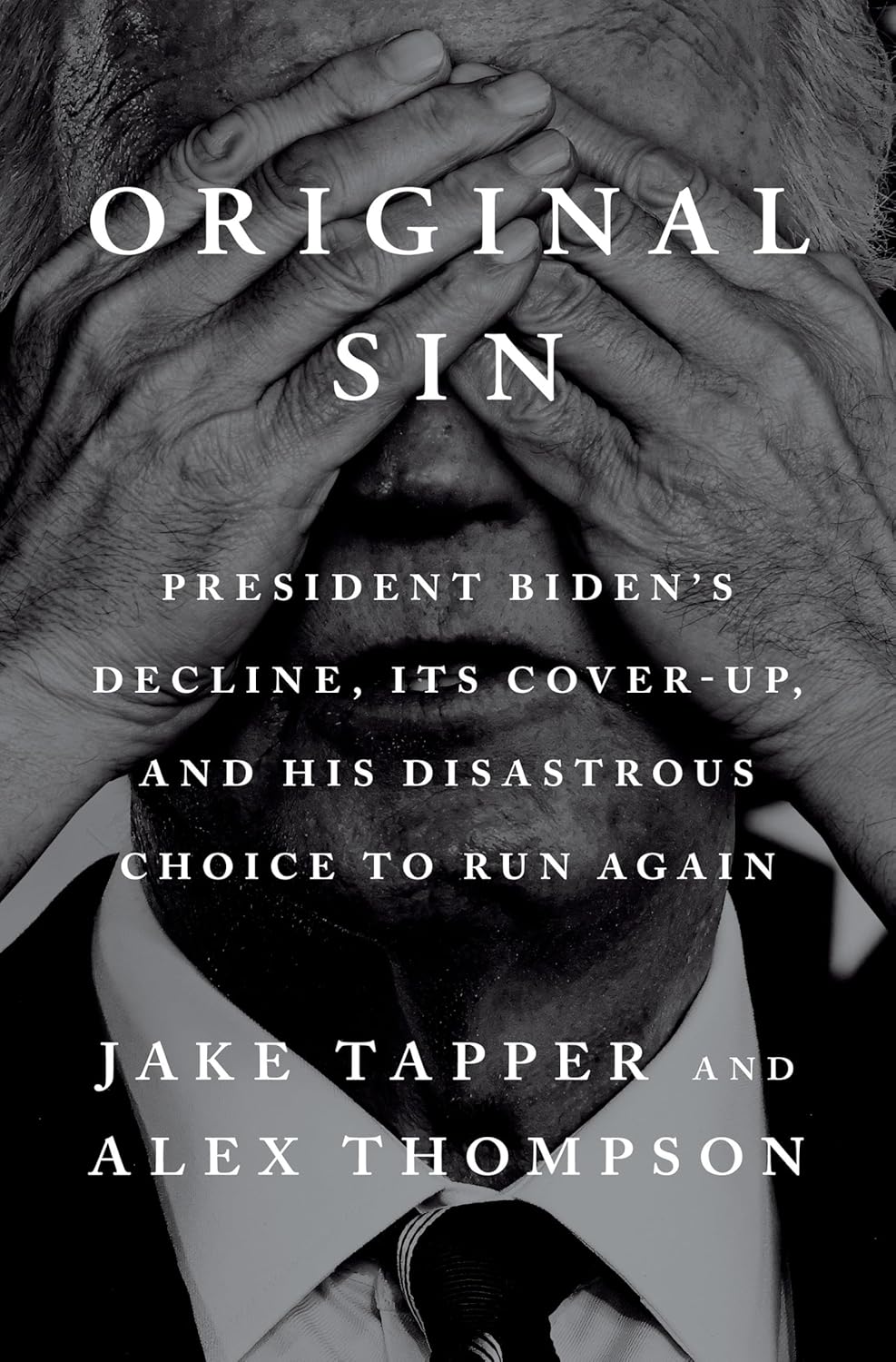 Original Sin: President Biden’s Decline, Its Cover-Up, and His Disastrous Choice to Run Again
Original Sin: President Biden’s Decline, Its Cover-Up, and His Disastrous Choice to Run Again
Jake Tapper and Alex Thompson
Penguin Press (May 20, 2025)
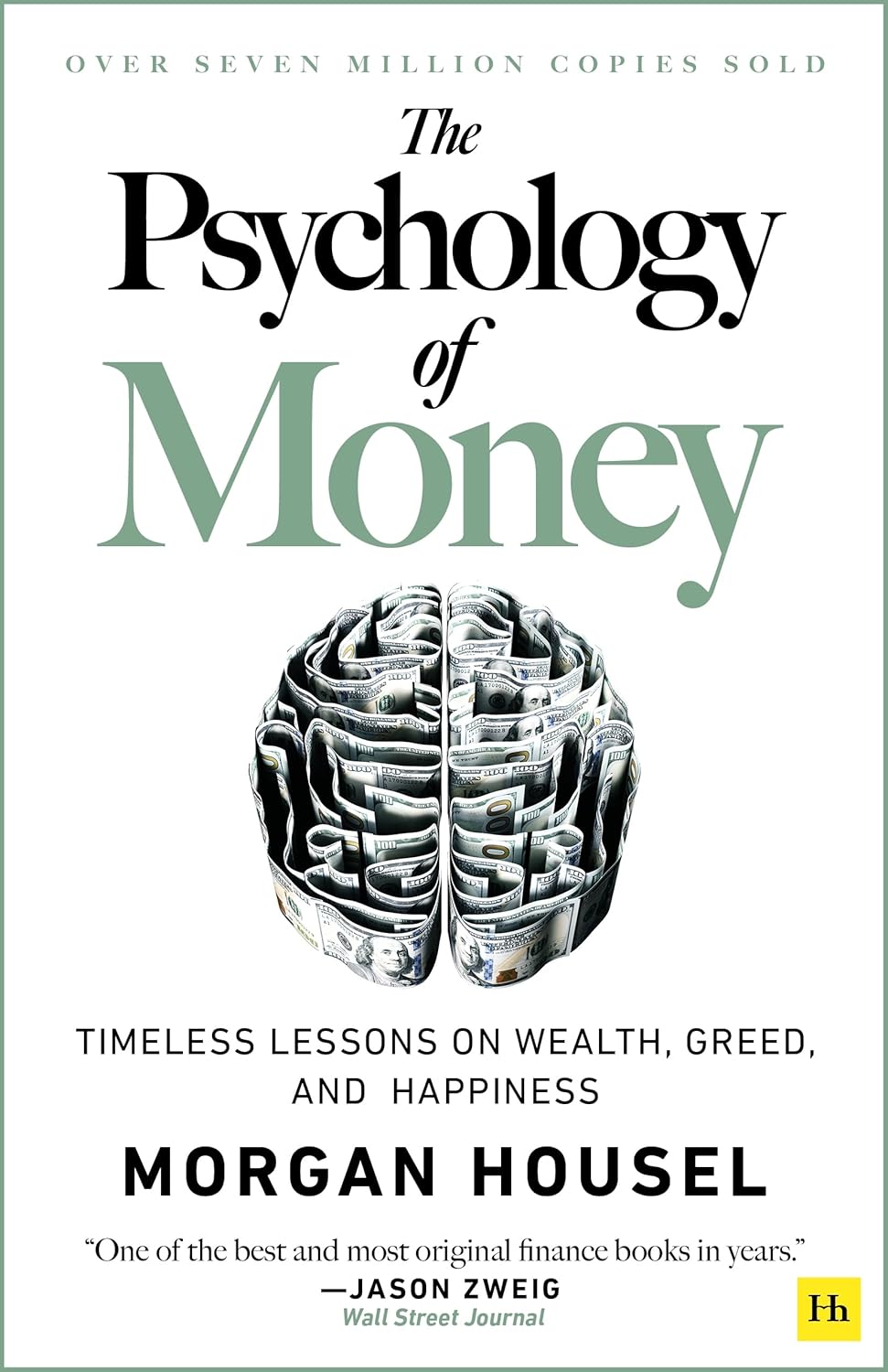 The Psychology of Money: Timeless lessons on wealth, greed, and happiness
The Psychology of Money: Timeless lessons on wealth, greed, and happiness
Morgan Housel
Harriman House (September 8, 2020)
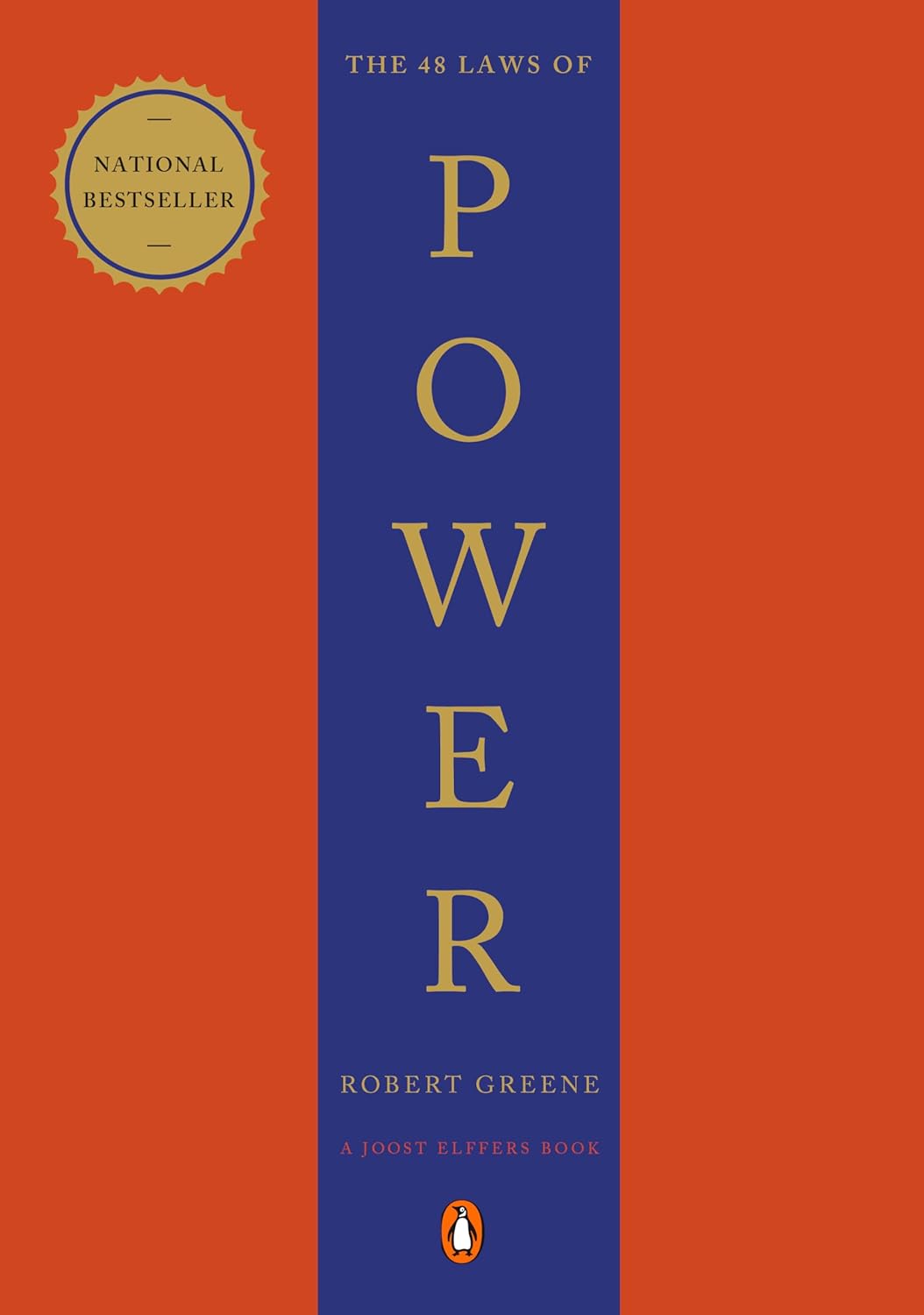 The 48 Laws of Power
The 48 Laws of Power
Robert Greene
Penguin Books (September 1, 2000)
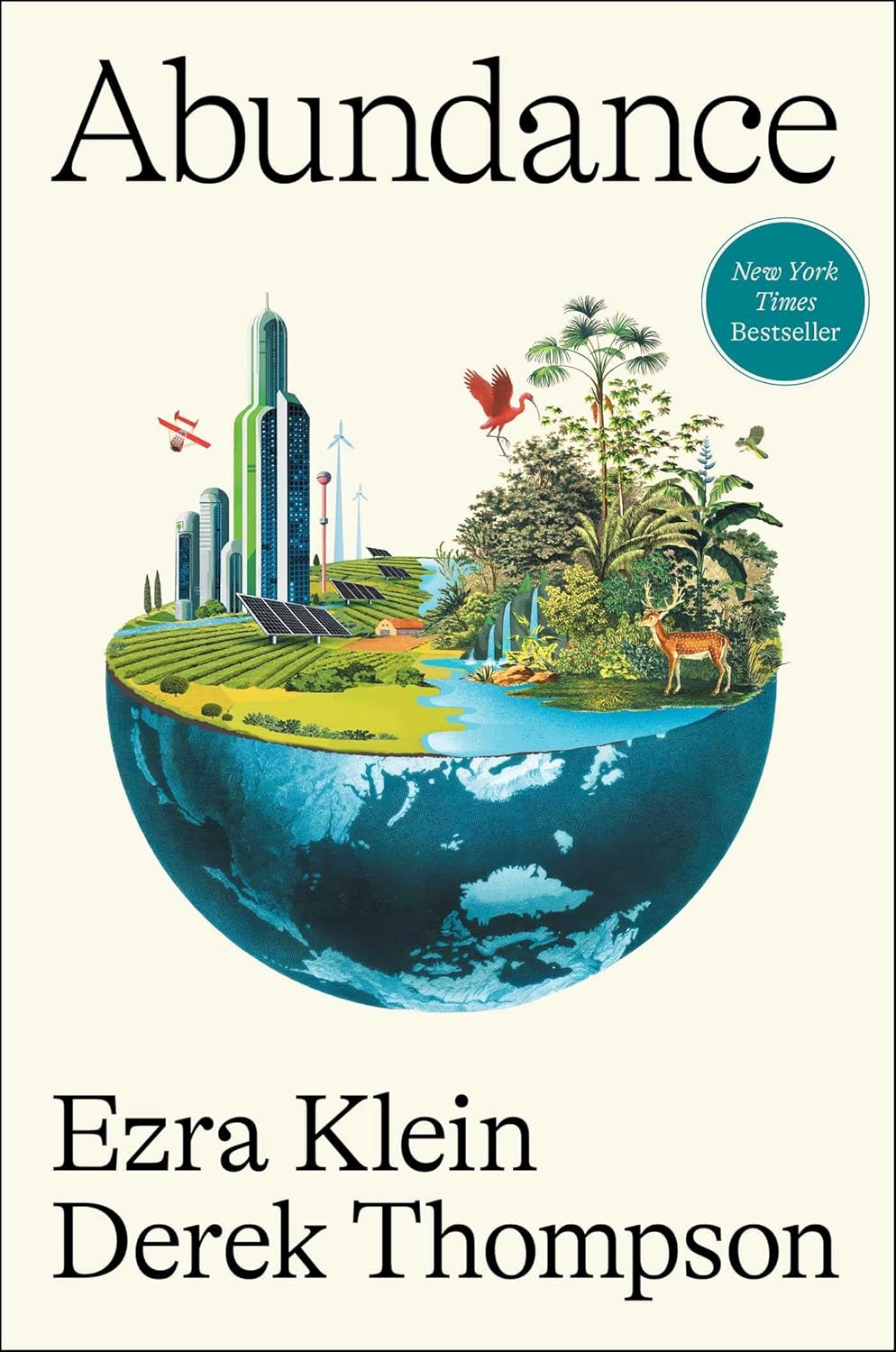 Abundance
Abundance
Ezra Klein
Avid Reader Press/ Simon & Schuster (March 18, 2025)
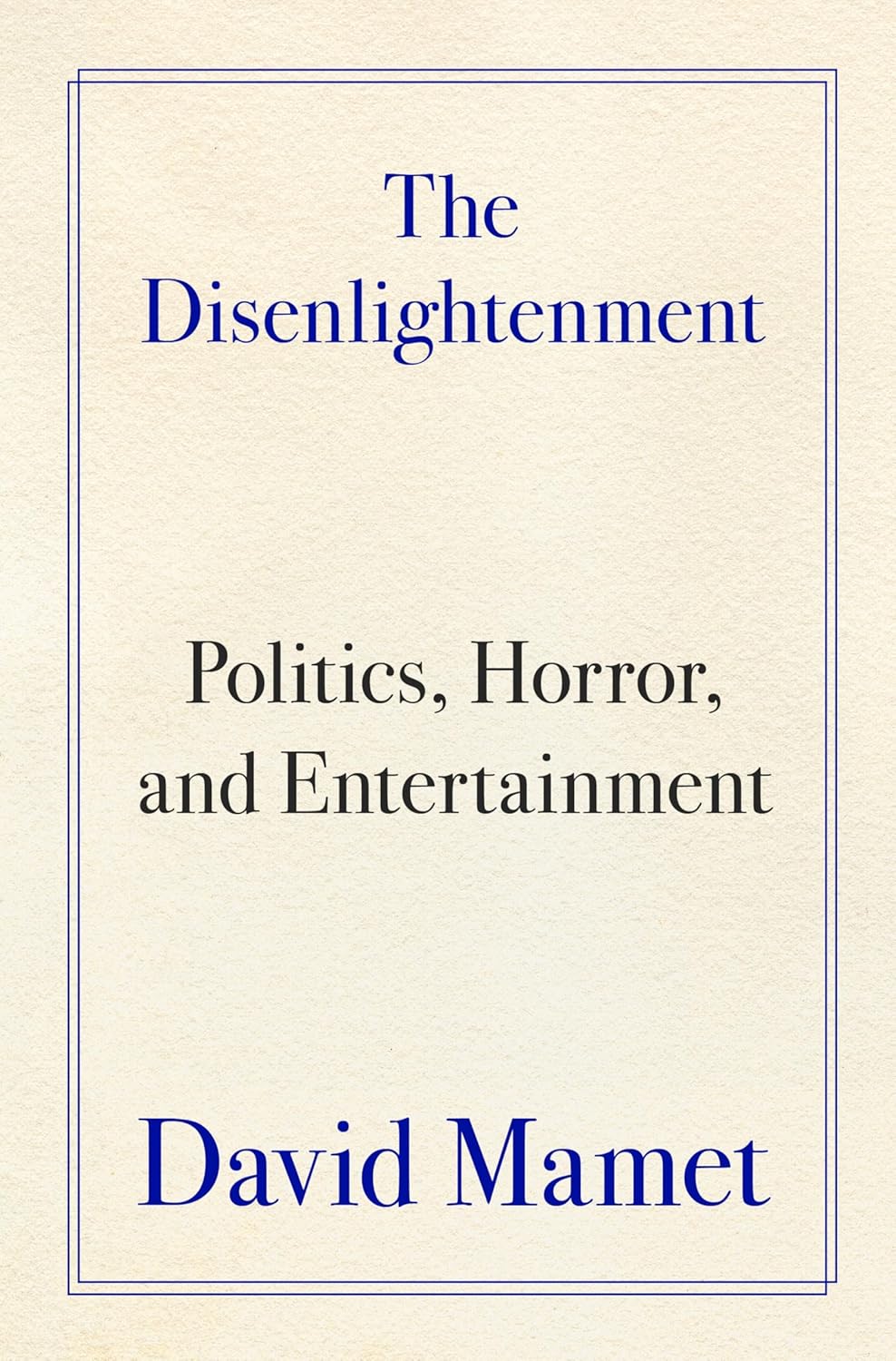 The Disenlightenment: Politics, Horror, and Entertainment
The Disenlightenment: Politics, Horror, and Entertainment
David Mamet
Bradside Books (June 3, 2025)
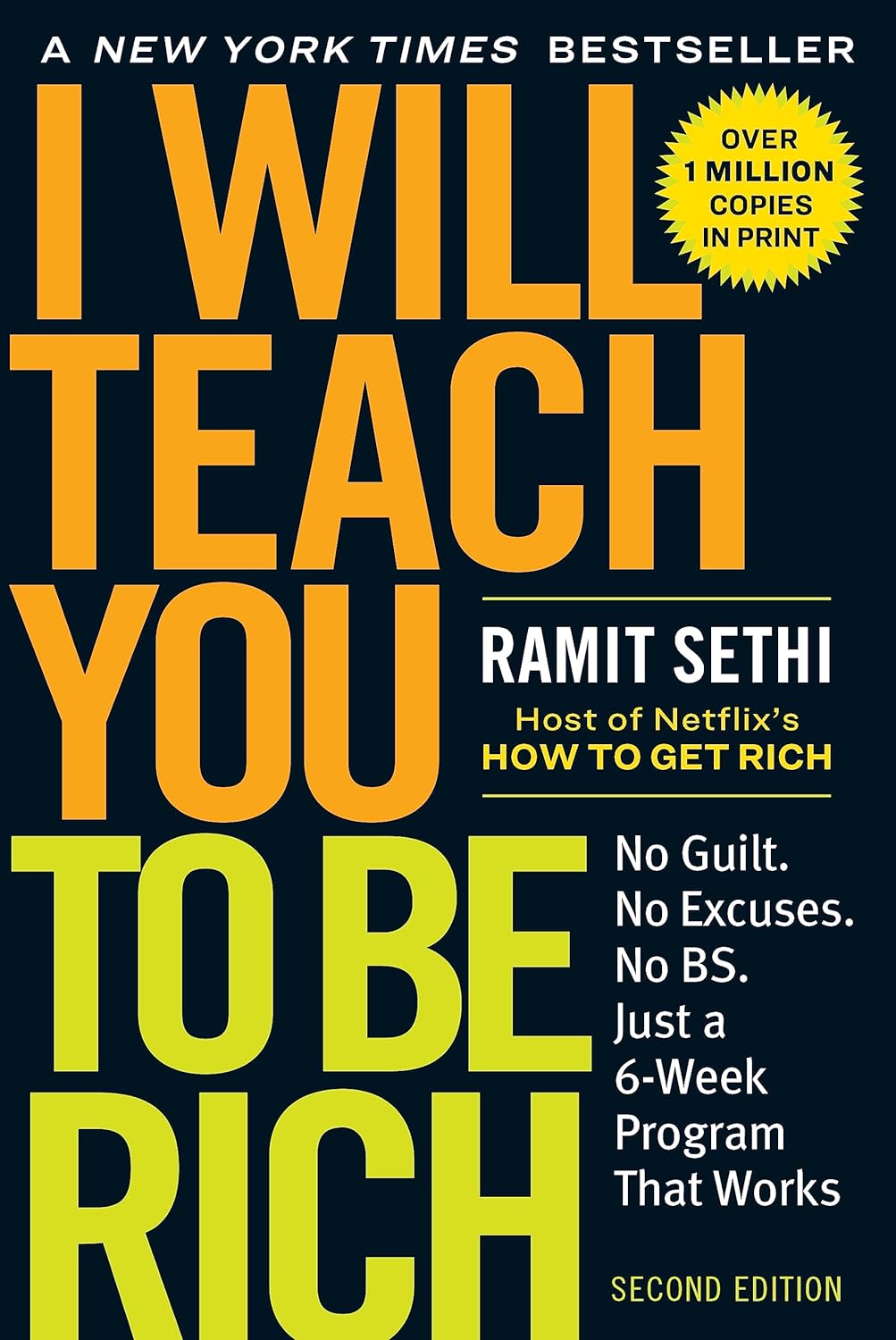 I Will Teach You to Be Rich
I Will Teach You to Be Rich
Ramit Sethi
Workman Publishing Company (May 14, 2019)
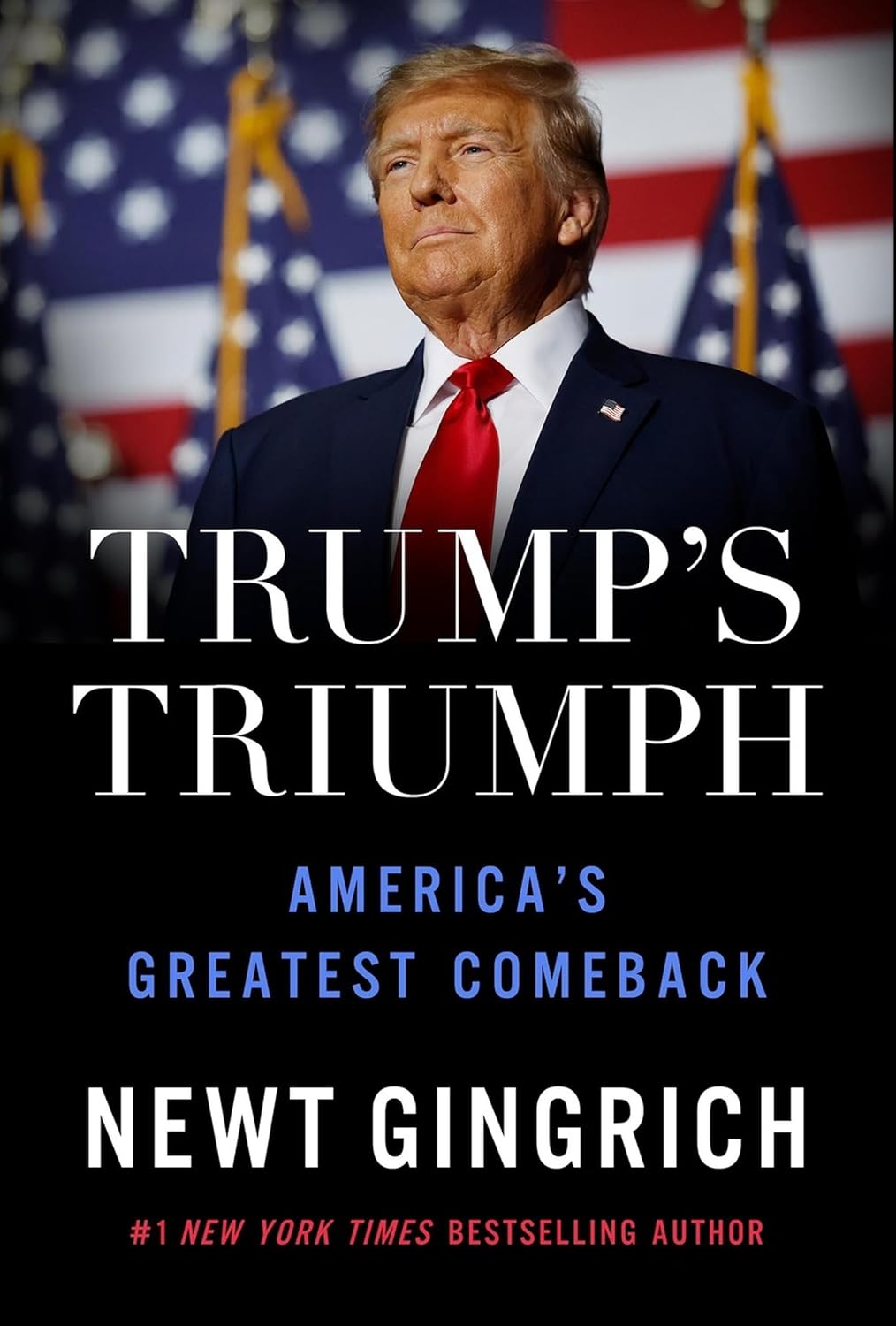 Trump’s Triumph: America’s Greatest Comeback
Trump’s Triumph: America’s Greatest Comeback
Newt Gingrich
Center Street (June 3, 2025)
 Rich Dad Poor Dad: What the Rich Teach Their Kids About Money That the Poor and Middle Class Do Not!
Rich Dad Poor Dad: What the Rich Teach Their Kids About Money That the Poor and Middle Class Do Not!
Robert T. Kiyosaki
Plata Publishing (April 5, 2022)
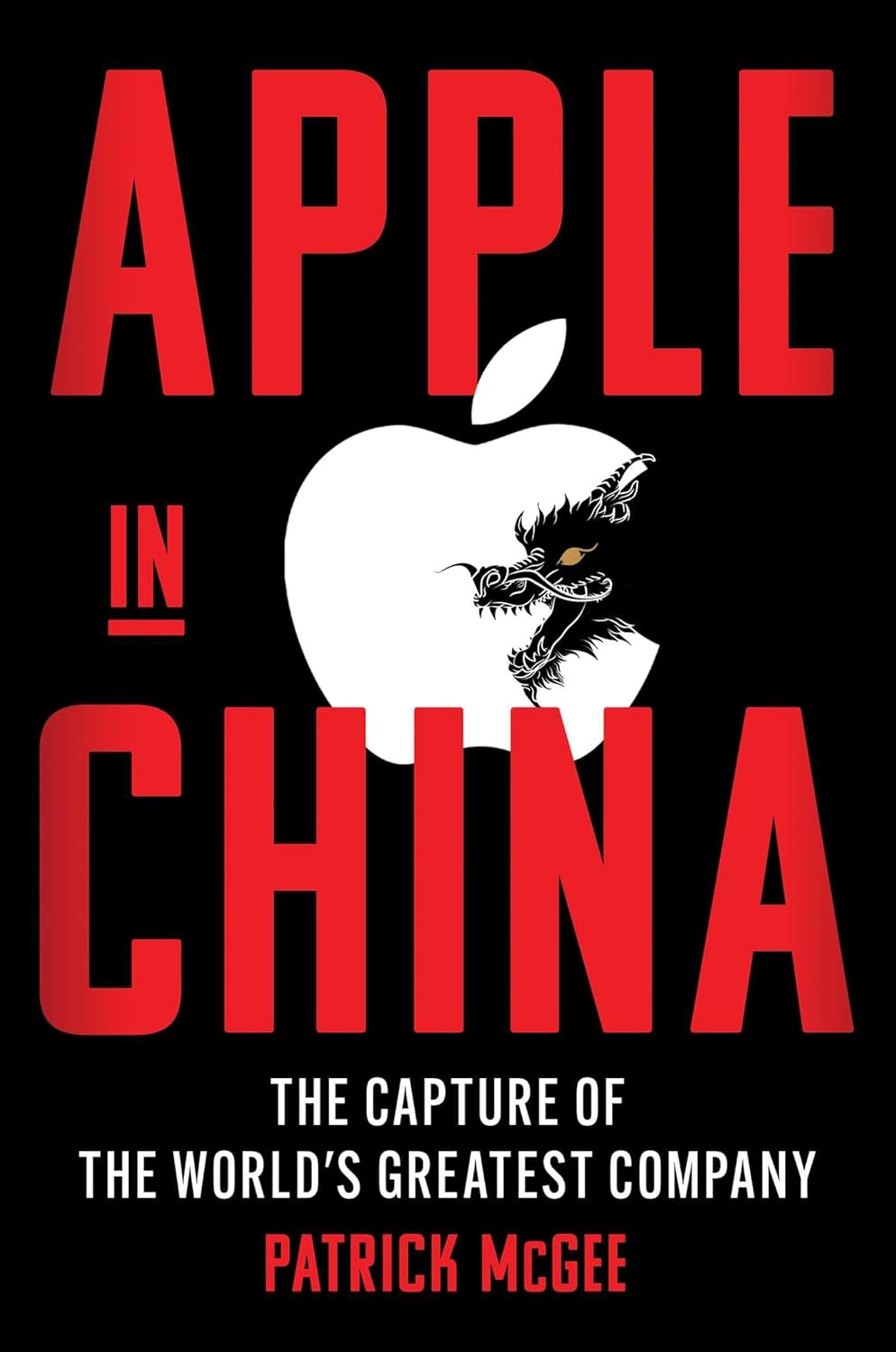 Apple in China: The Capture of the World’s Greatest Company
Apple in China: The Capture of the World’s Greatest Company
Patrick McGee
Scribner (May 13, 2025)
For readers of Walter Isaacson’s Steve Jobs and Chris Miller’s Chip War, a riveting look at how Apple helped build China’s dominance in electronics assembly and manufacturing only to find itself trapped in a relationship with an authoritarian state making ever-increasing demands.
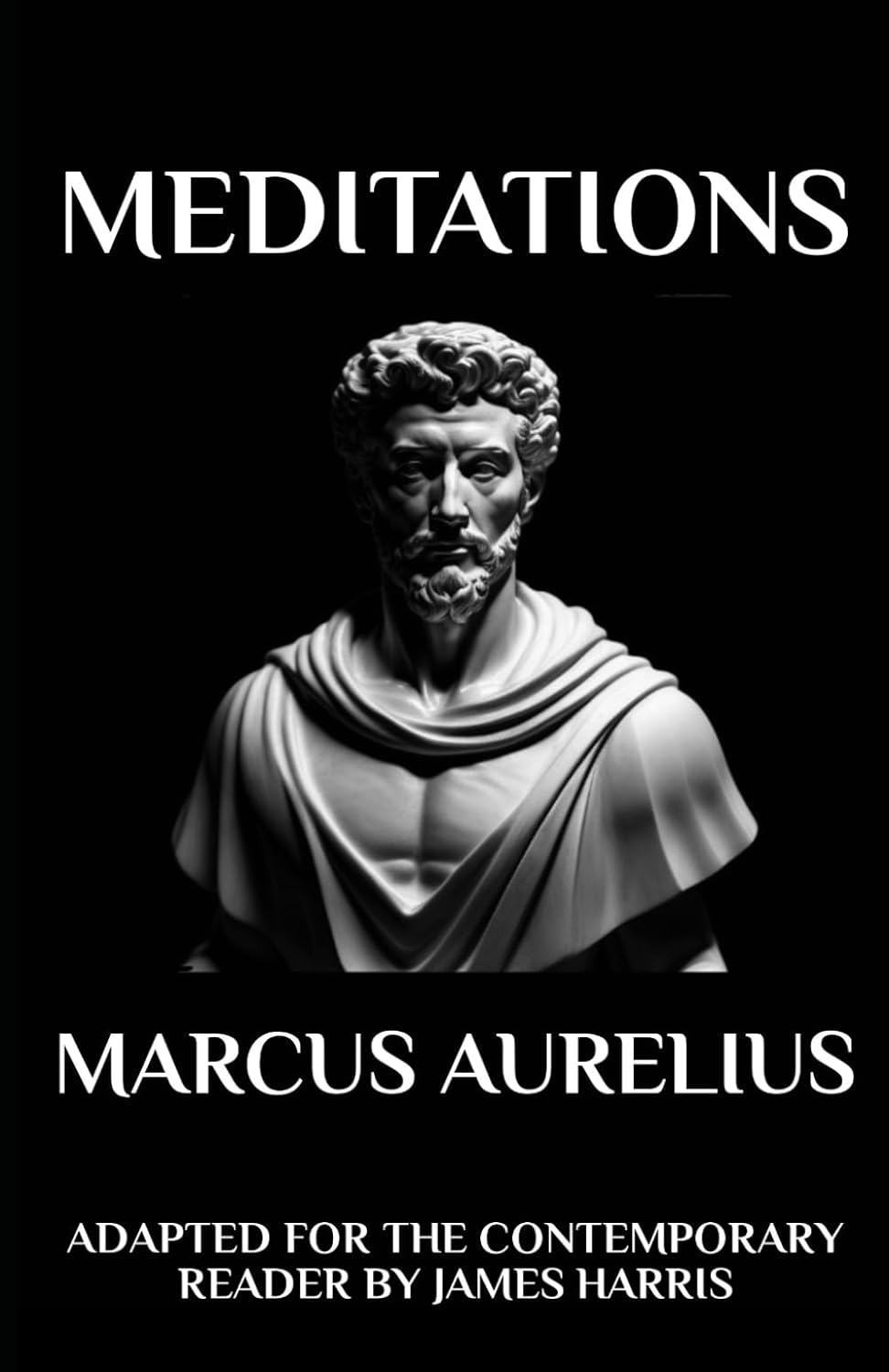 Meditations
Meditations
Marcus Aurelius, translation by James Harris
Independently Published (November 7, 2016)
Children’s
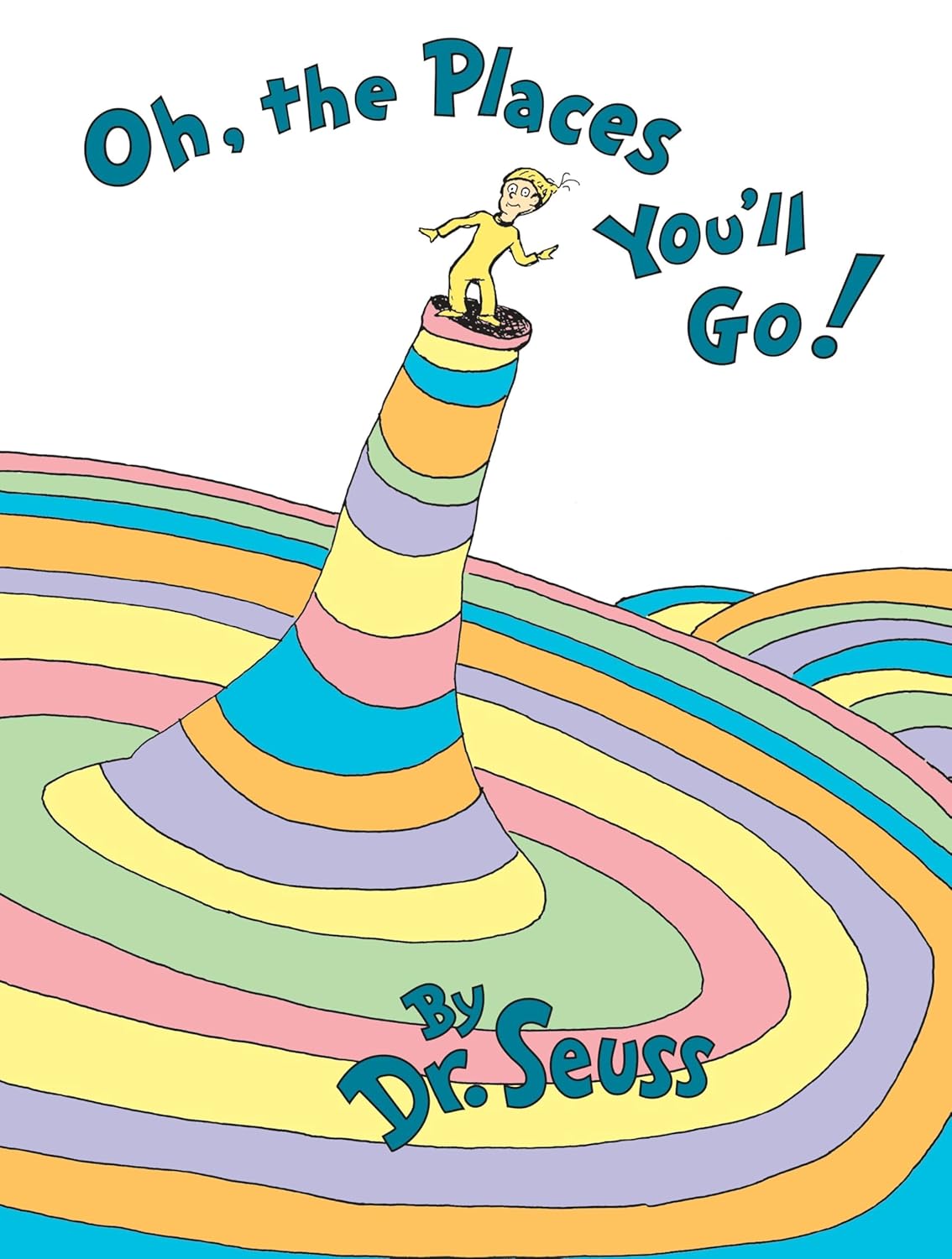 Oh, the Places You’ll Go!
Oh, the Places You’ll Go!
Dr. Seuss
Random House Books for Young Readers (January 22, 1990)
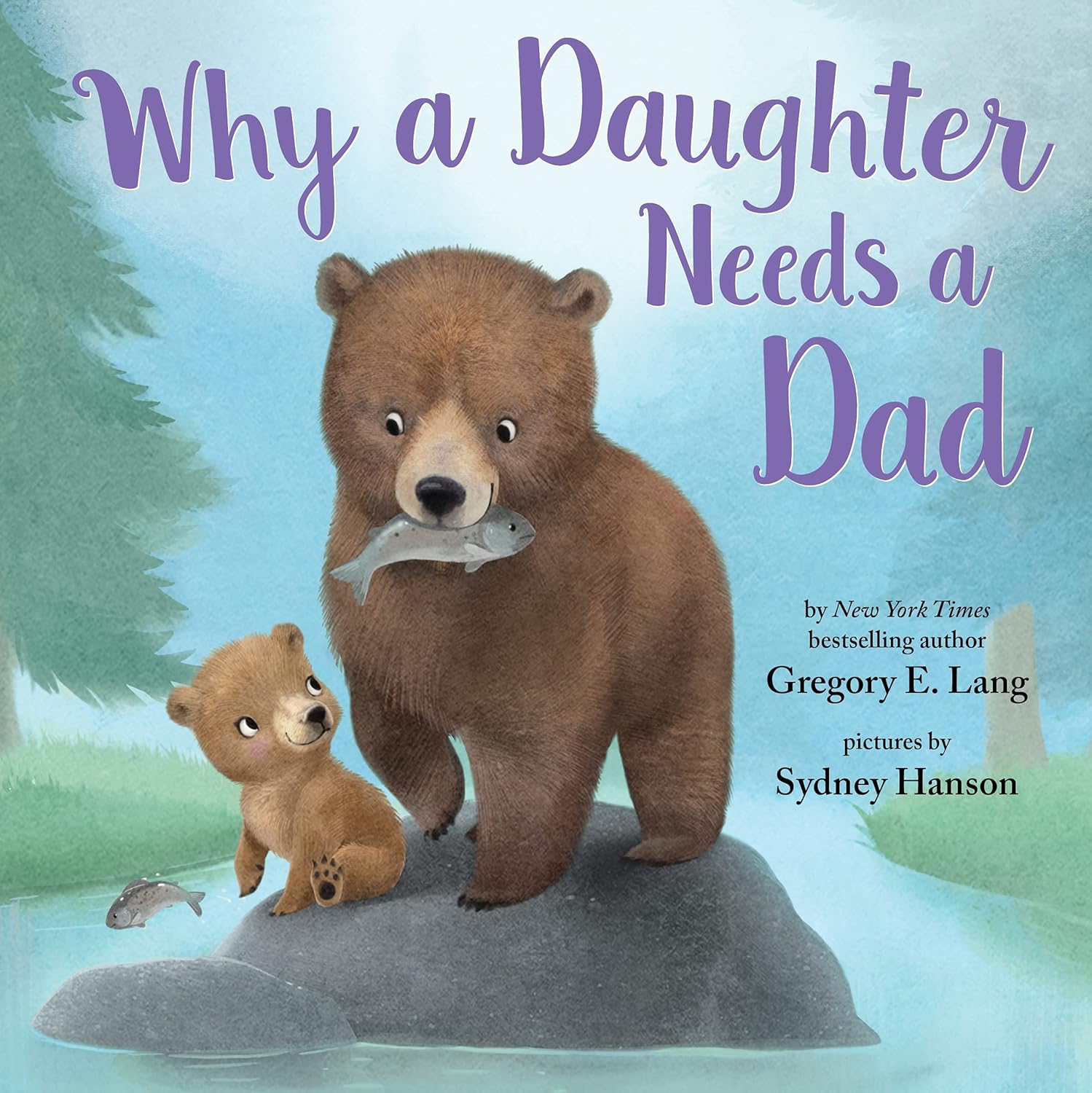 Why a Daughter Needs a Dad
Why a Daughter Needs a Dad
Gregory E. Lang and Susanna Leonard Hill
Sourcebooks Wonderland (May 7, 2019)
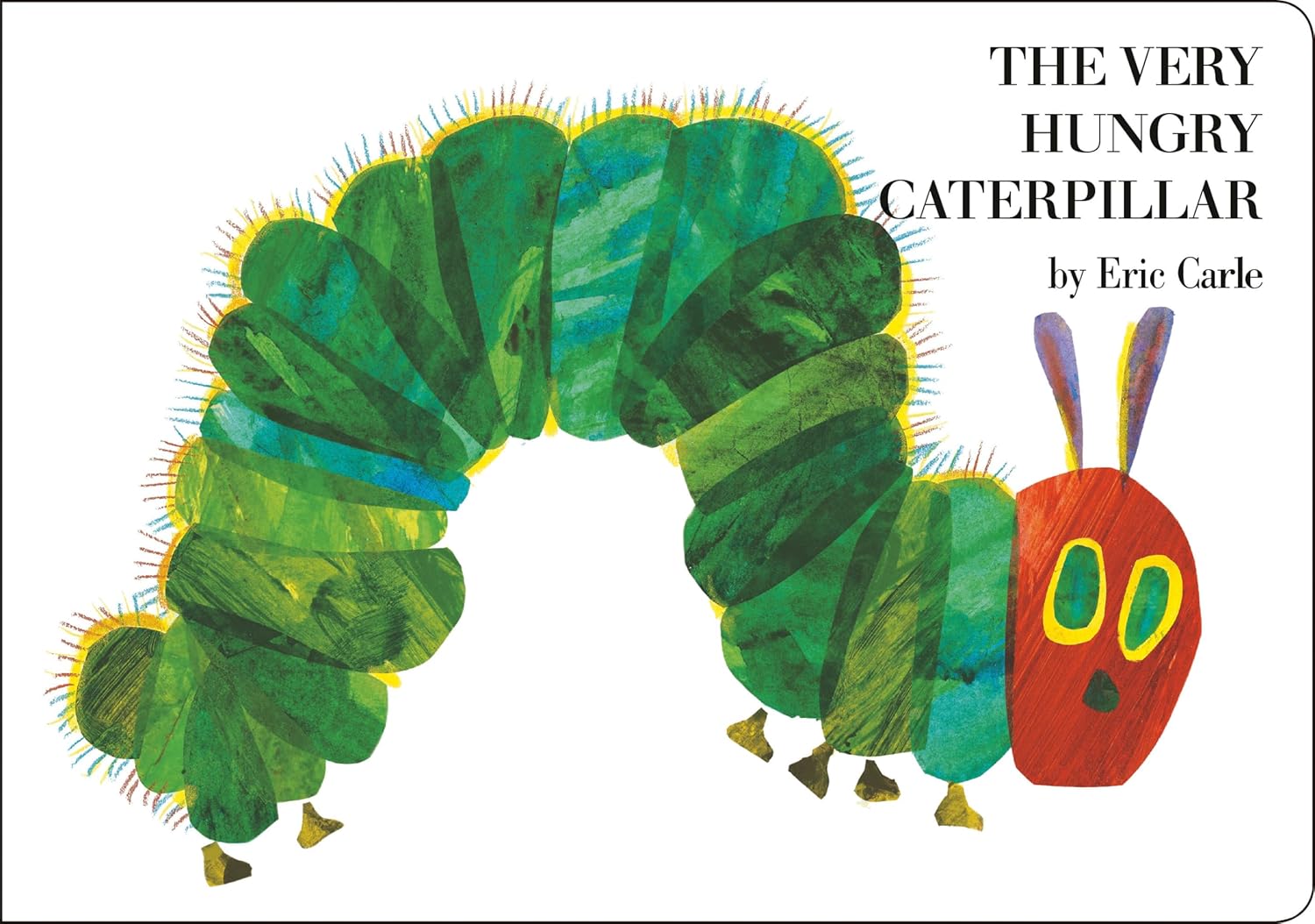 The Very Hungry Caterpillar
The Very Hungry Caterpillar
Eric Carle
World of Eric Carle (March 23, 1994)
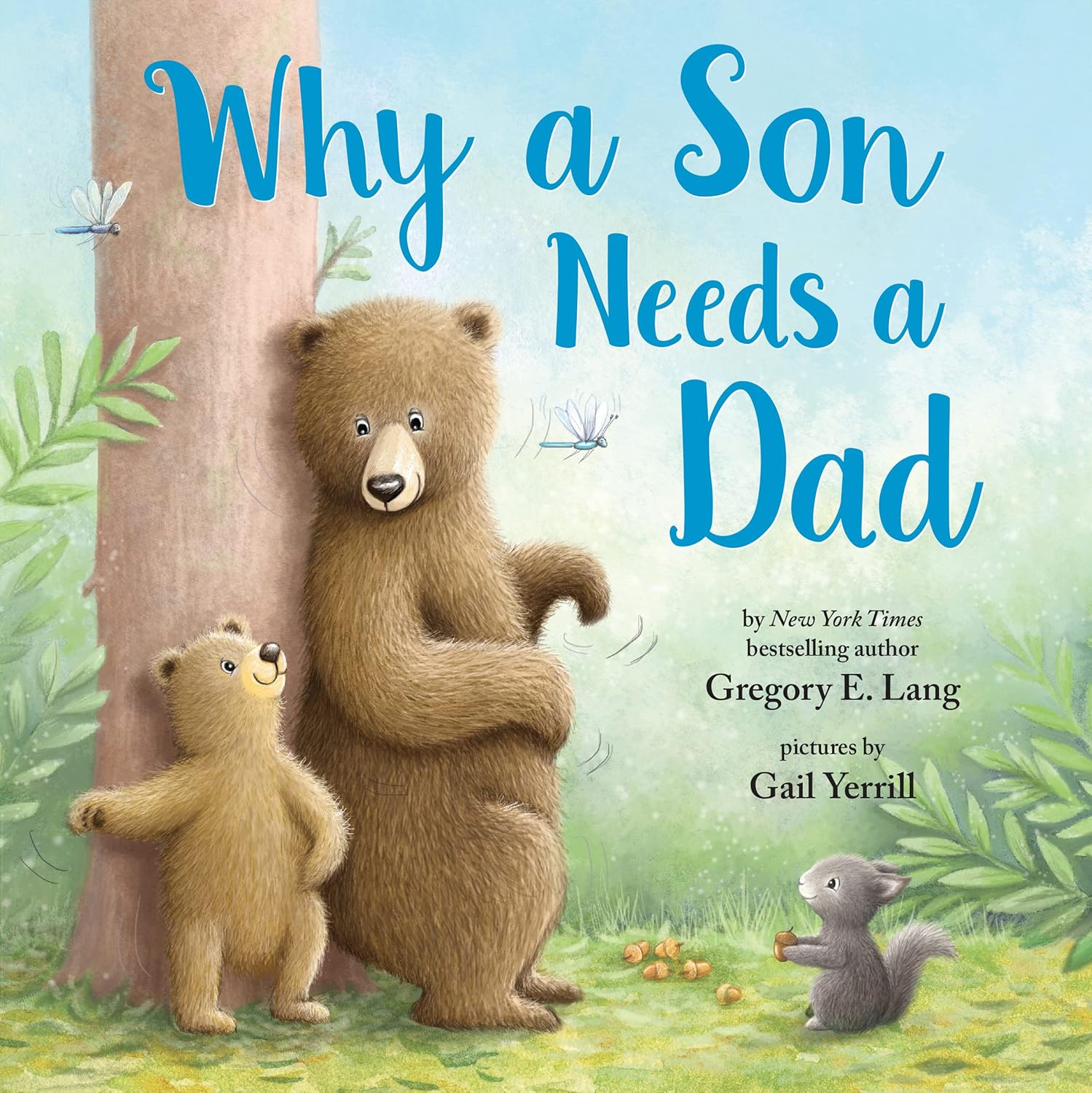 Why a Son Needs a Dad
Why a Son Needs a Dad
Gregory E. Lang and Susanna Leonard Hill
Sourcebooks Wonderland (April 1, 2021)
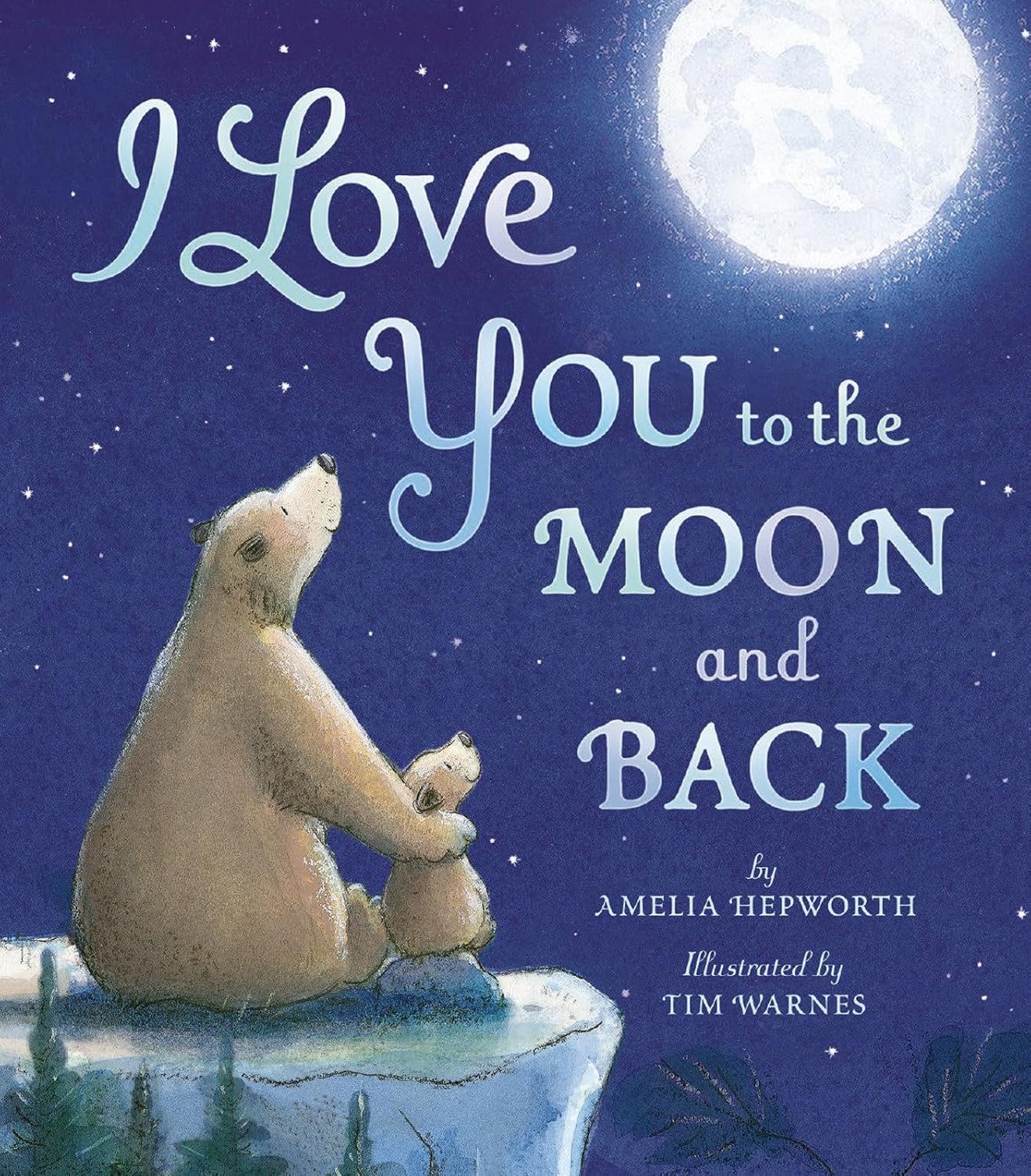 I Love you to the Moon and Back
I Love you to the Moon and Back
Amelia Hepworth and Tim Warnes
Tiger Tales (September 17, 2024)
Young adult
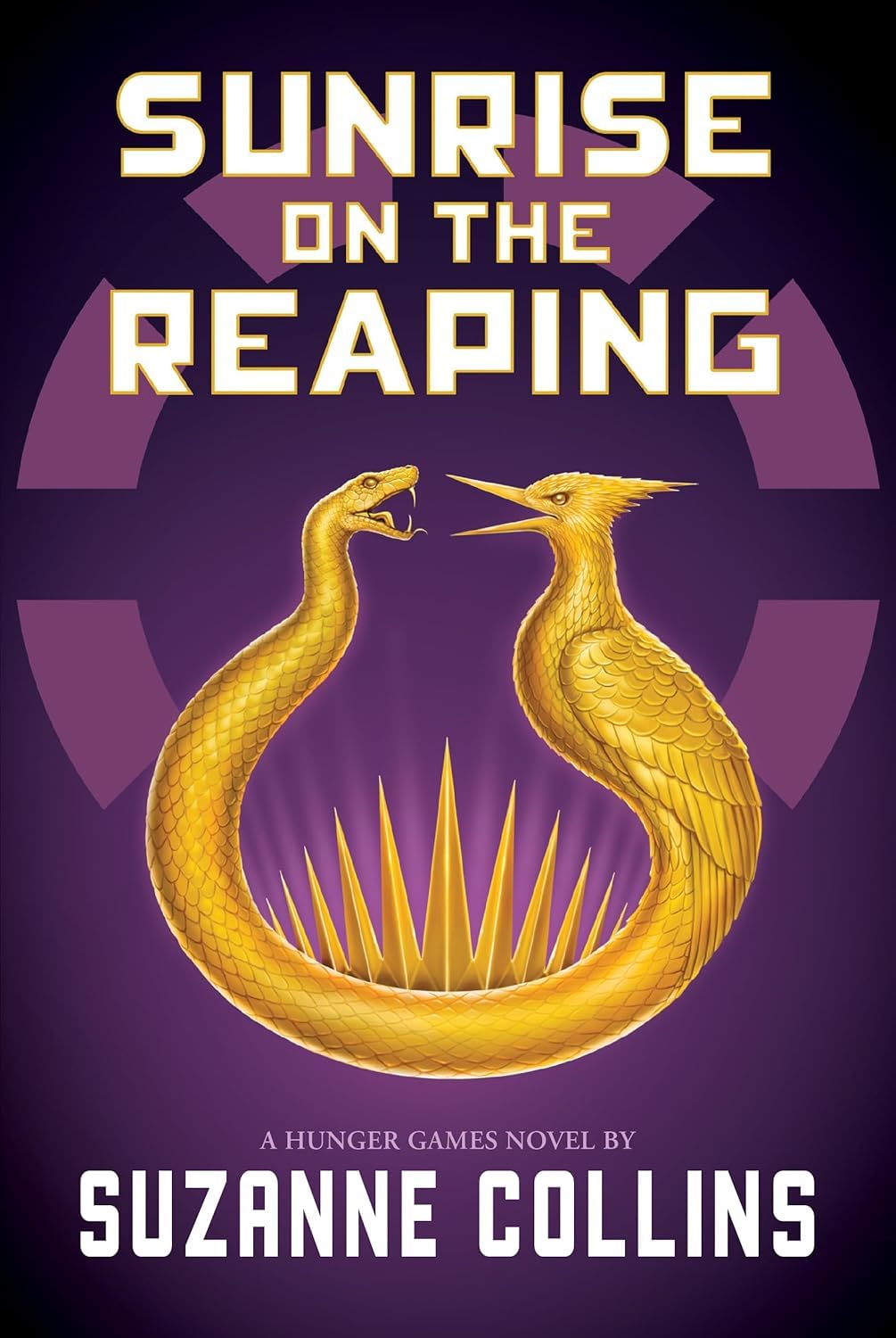 Sunrise on the Reaping
Sunrise on the Reaping
Suzanne Collins
Scholastic Press (March 18, 2025)
 Releasing 10 (Deluxe Edition)
Releasing 10 (Deluxe Edition)
Chloe Walsh
Bloom Books (May 27, 2025)
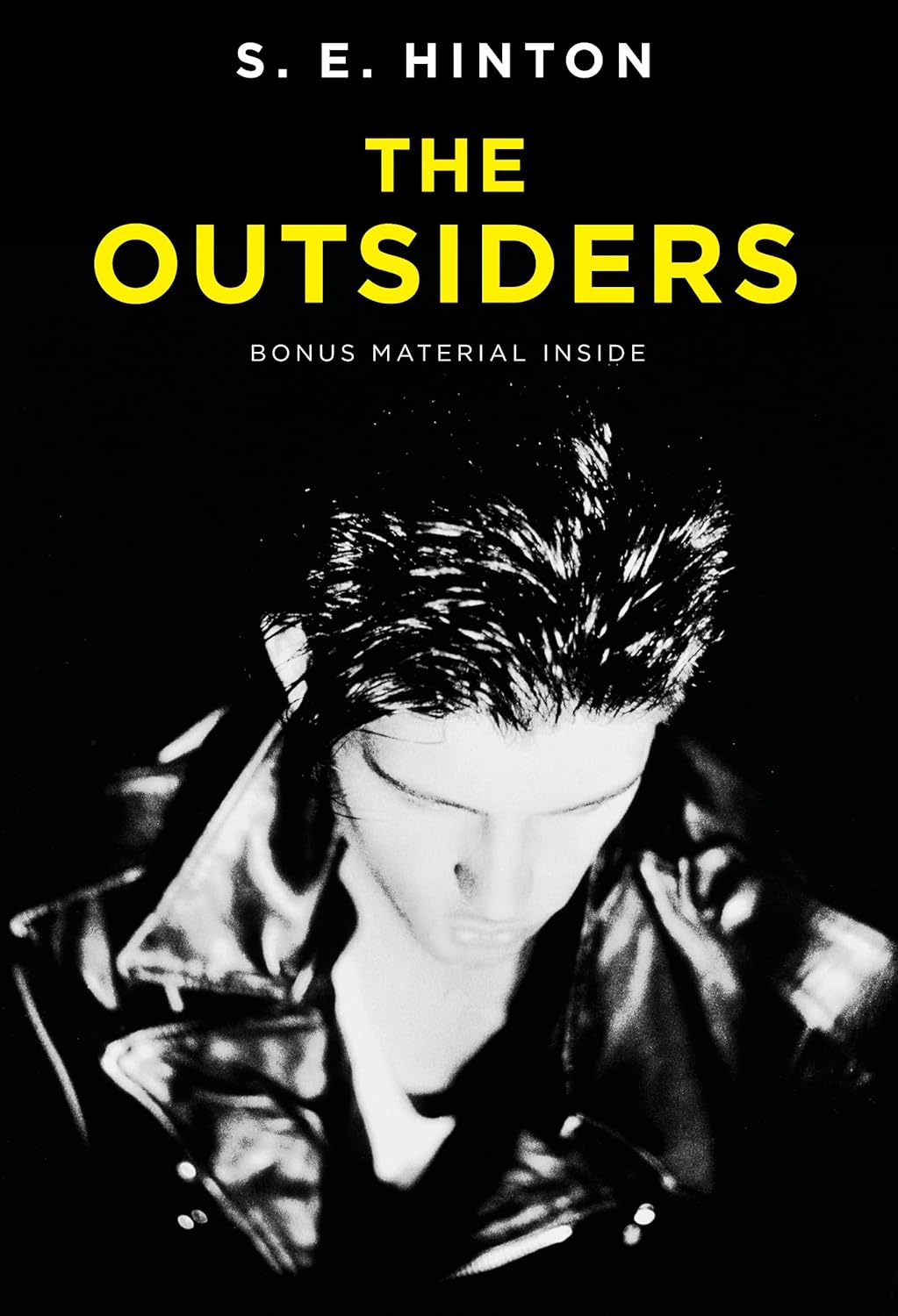 The Outsiders
The Outsiders
S. E. Hinton
Viking Books for Young Readers (April 20, 2006)
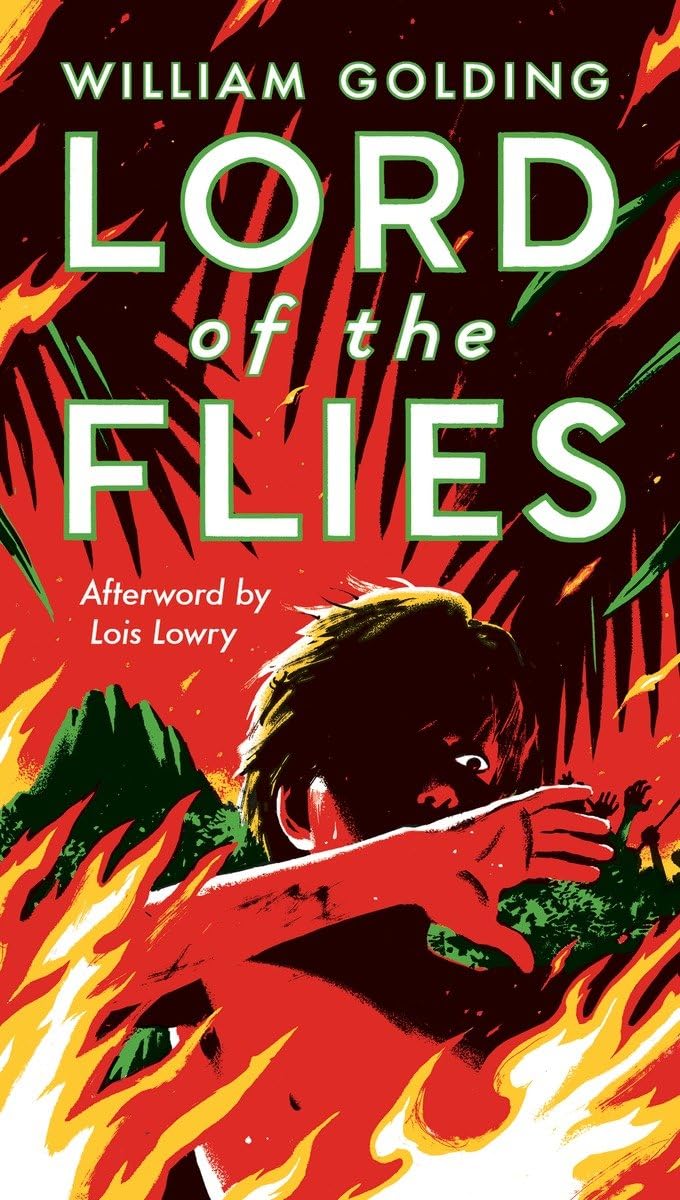 Lord of the Flies
Lord of the Flies
William Golding
Penguin Books (December 16, 2003)
 Fearless
Fearless
Lauren Roberts
Simon & Schuster Books for Young Readers (April 8, 2025)
Recommended Books
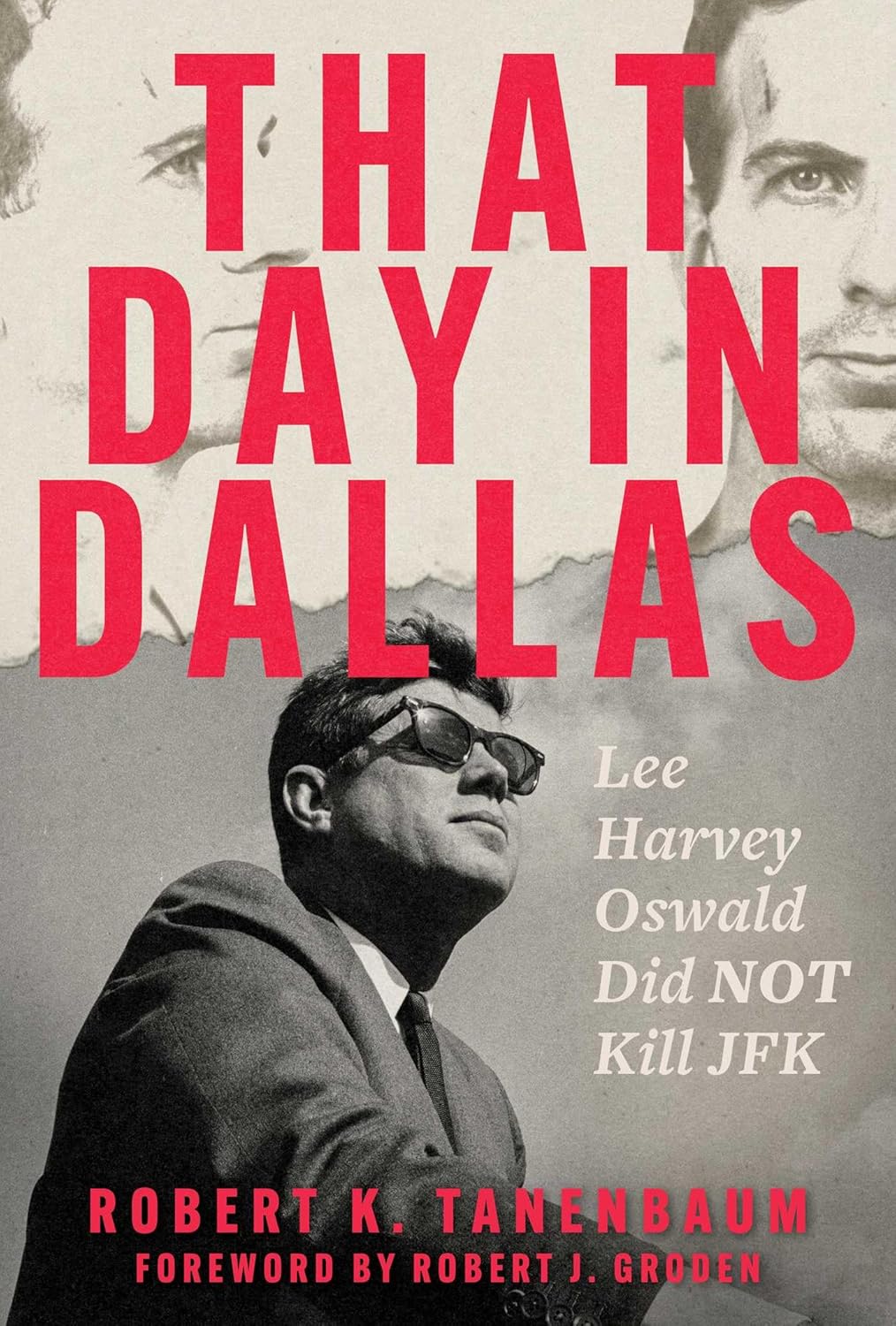 That Day in Dallas: Lee Harvey Oswald Did NOT Kill JFK
That Day in Dallas: Lee Harvey Oswald Did NOT Kill JFK
Robert K. Tanenbaum
Regnery (June 10, 2025)
That Day in Dallas: Lee Harvey Oswald Did Not Kill JFK is best described as a prosecution by Robert K. Tanenbaum of those corrupt, unscrupulous government and unelected agency officials, who from inception with predetermined outcomes, deceitfully engaged in insecure, phony pretense probes regarding the assassination in Dealey Plaza. Those responsible are prosecuted while those who speak truth to power are exonerated.
Robert Tanenbaum, who in 1976 was appointed deputy chief counsel in charge of the congressional investigation into the assassination of President Kennedy, provides stunning and shocking “immutable facts” that reveal unequivocally that the government’s reliance on the Warren Commission (WC) investigation and the House Select Committee on Assassinations (HSCA) alleged probe were reprehensibly and ultimately gut-wrenchingly misleading and downright dishonest.
The HSCA was not interested in searching for truth. In fact, as an example, it ultimately fabricated a significant portion of its forensic medical panel summary report and then sealed for fifty years all the underlying documents.
For the past sixty years, the government’s contrived case that a sole gunman fired from the rear three shots from the sixth-floor sniper’s nest window inside the Dallas Book Depository building, rested substantially on invalid science and common sense offered to prove the so-called “Single-Bullet Theory.” Evidence shows that five shots were fired in Dealey Plaza, not three. Corroboration of the fourth shot, the fatal blast fired from the geographical front of JFK at the knoll hill stockade fence area, includes witnesses and exhibits, as well as scientific audio and photo verification, while significant convincing evidence shows that the fifth shot came from a northeast building complex behind JFK.
The uncomfortable truth is that Lee Harvey Oswald has been unjustly accused as the assassin notwithstanding his contract employee status of both the CIA and FBI.
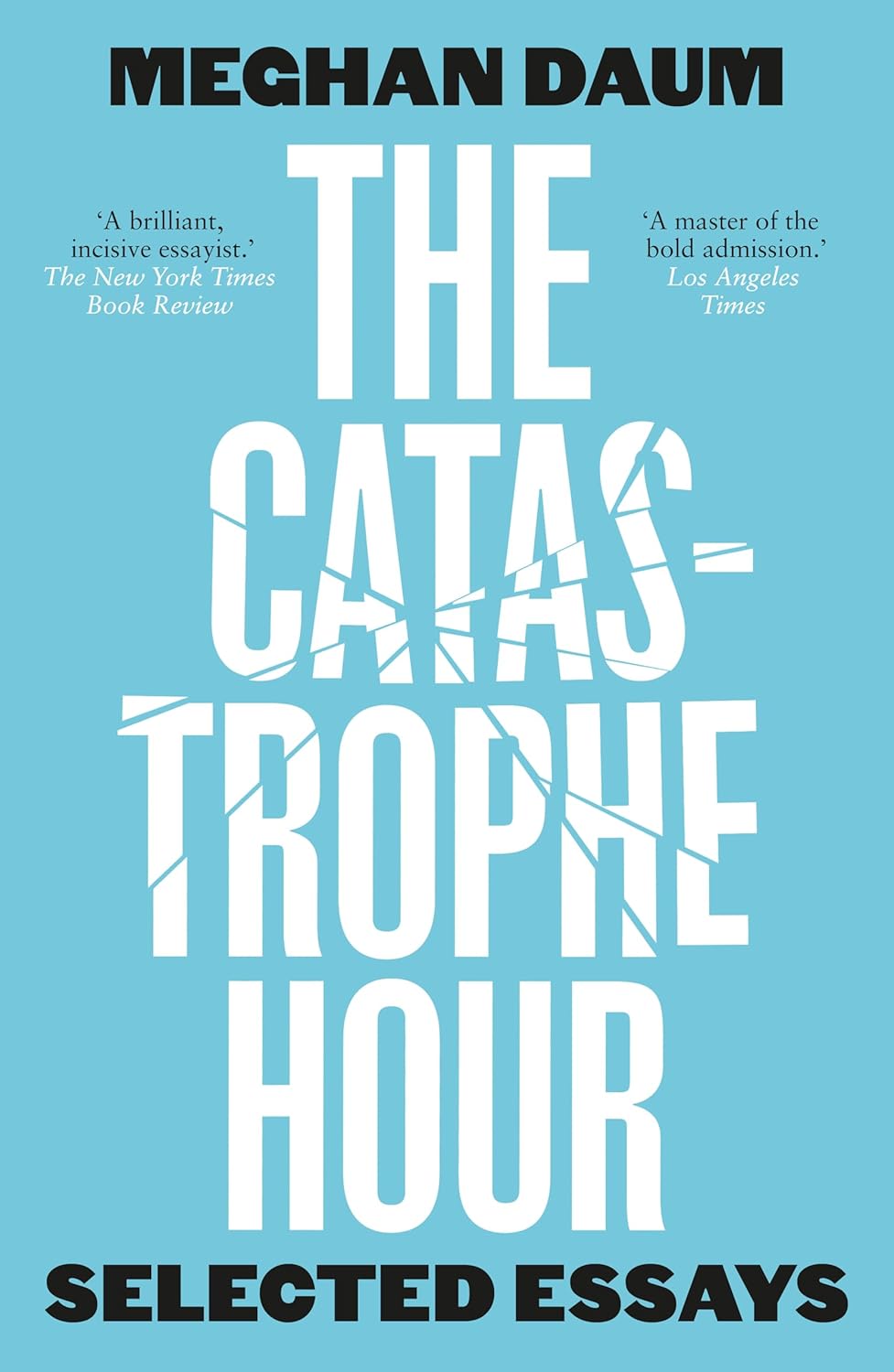 The Catastrophe Hour: Selected Essays
The Catastrophe Hour: Selected Essays
Meghan Daum
Notting Hill Editions (April 15, 2025)
From the New York Times–bestselling author of The Unspeakable and The Problem with Everything comes a new collection of unputdownable essays.
“For the last five or six years, on many afternoons around 4 or 5 p.m., I’ve been overcome with the sensation that my life is effectively over. Note the personal touch here. This is not a sensation of the world ending, which has been in vogue for quite some time now, and maybe for good reason. It’s a distinct feeling of being at the end of my days. My time, while technically not ‘up,’ is disappearing in the rearview mirror. The fact that this feeling of ambient doom tends to coincide with the blue-tinged, pre-gloaming light of the late afternoon lends to the whole thing a cosmic beauty, as devastating as it is awe-inspiring. As such, I’ve dubbed this the catastrophe hour.”
Written between 2016 and 2023, these essays are classic Daum, showcasing the author’s wit, her intellect, and her uncanny ability to throw new light on even the most ubiquitous of subjects. Delving into divorce, dating, music, friendship, beauty, aging, death and money, Daum’s unflinching honesty and exacting observations secure her reputation as one of our most important and enduring essayists.
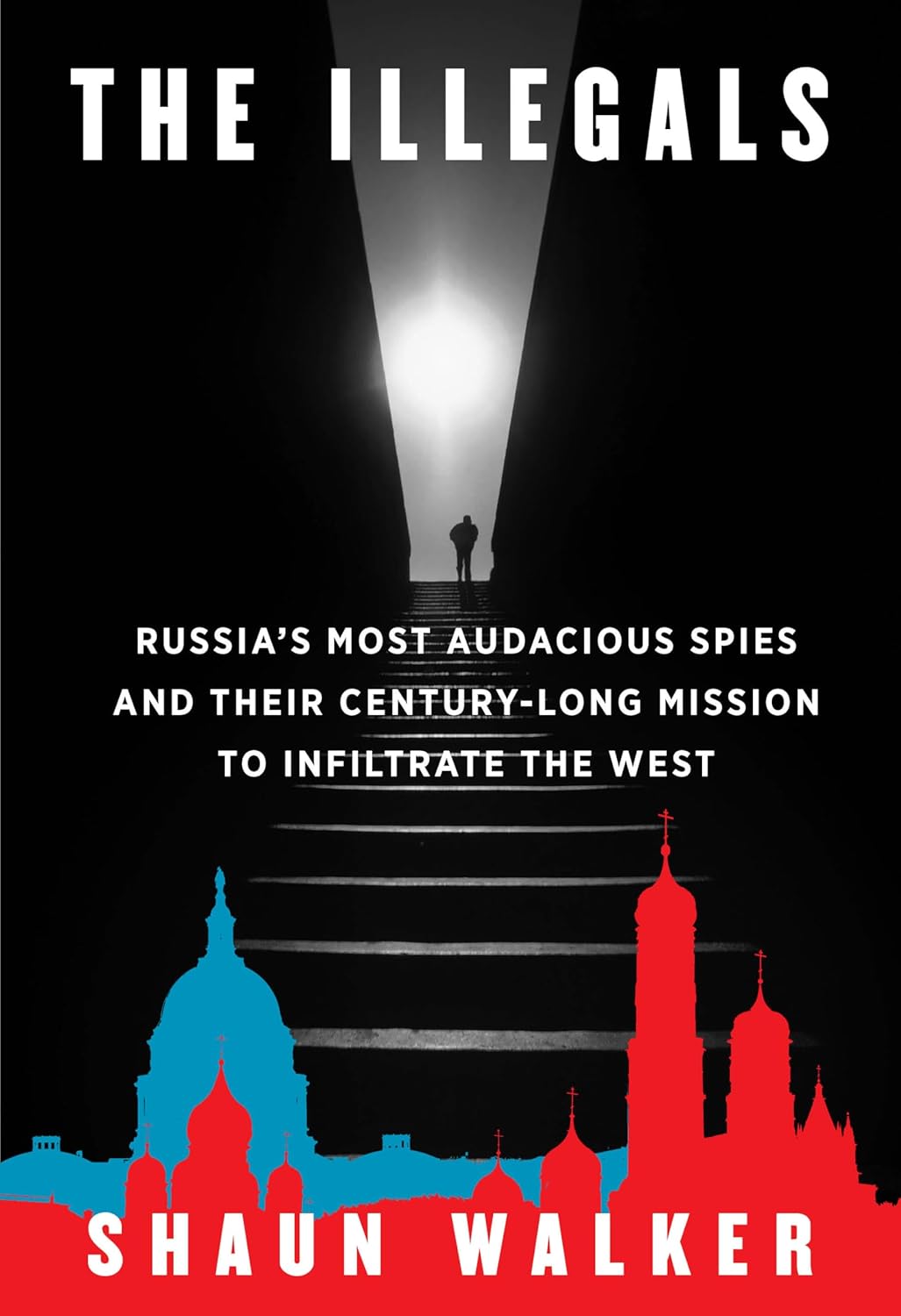 The Illegals: Russia’s Most Audacious Spies and Their Century-Long Mission to Infiltrate the West
The Illegals: Russia’s Most Audacious Spies and Their Century-Long Mission to Infiltrate the West
Shaun Walker
Knopf (April 15, 2025)
The definitive history of Russia’s most secret spy program, from the earliest days of the Soviet Union to Putin’s invasion of Ukraine, and a revelatory examination of how that hidden history shaped both Russia and the West.
More than a century ago, the new Bolshevik government began sending Soviet citizens abroad as deep-cover spies, training them to pose as foreign aristocrats, merchants, and students. Over time, this grew into the most ambitious espionage program in history. Many intelligence agencies use undercover operatives, but the KGB was the only one to go to such lengths, spending years training its spies in language and etiquette, and sending them abroad on missions that could last for decades. These spies were known as “illegals.” During the Second World War, illegals were dispatched behind enemy lines to assassinate high-ranking Nazis. Later, in the Cold War, they were sent to assimilate and lie low as sleepers in the West. The greatest among them performed remarkable feats, while many others failed in their missions or cracked under the strain of living a double life.
Drawing on hundreds of hours of interviews, as well as archival research in more than a dozen countries, Shaun Walker brings this history to life in a page-turning tour de force that takes us into the heart of the KGB’s most secretive program. A riveting spy drama peopled with richly drawn characters, The Illegals also uncovers a hidden thread in the story of Russia itself. As Putin extols Soviet achievements and the KGB’s espionage prowess, and Moscow continues to infiltrate illegals across the globe, this timely narrative shines new light on the long arc of the Soviet experiment, its messy aftermath, and its influence on our world at large.
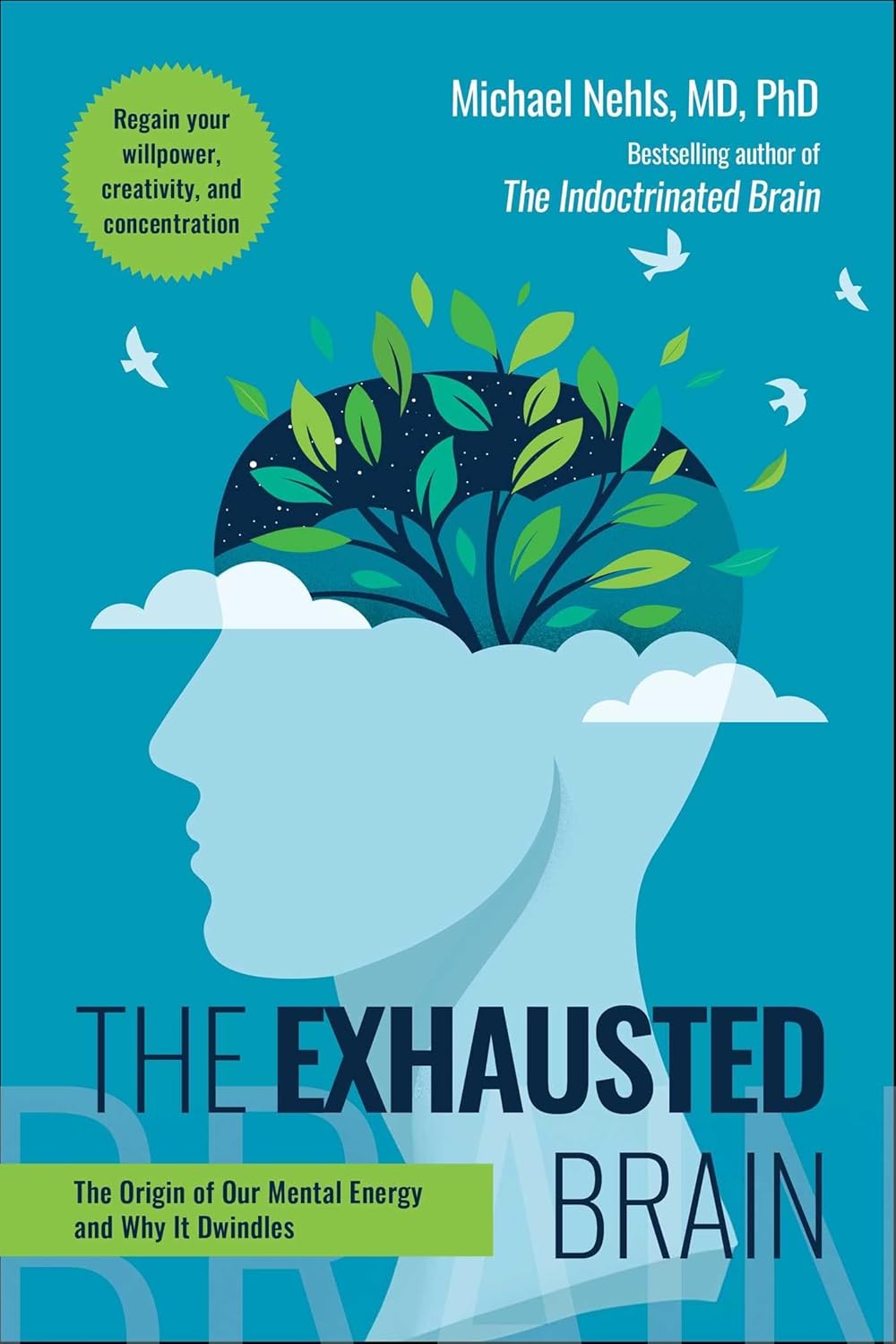 The Exhausted Brain: The Origin of Our Mental Energy and Why It Dwindles
The Exhausted Brain: The Origin of Our Mental Energy and Why It Dwindles
Michael Nehls, MD, PhD, translated by Andy Jones Berasaluce
Skyhorse Publishing (April 22, 2025)
Revitalize Your Brain, Reclaim Your Mental Energy
Everyone knows the feeling after a long day—it is difficult to concentrate, make good decisions, or even empathize with others. This daily but completely natural decline in our mental capacity is called “ego depletion,” a state of mind that miraculously but naturally disappears after a good night’s sleep.
However, more and more people are waking up in a perpetual state of ego depletion: their mental energy source is not recharging—it is actually shrinking. We live in a chronically exhausted society with disastrous consequences for ourselves, society, and future generations.
In The Exhausted Brain, Dr. Michael Nehls uncovers the source of our mental energy. He reveals where our “brain battery” is located, what function it serves within our brain, and how we can stop and reverse the decline in its capacity—with profound consequences for our mental wellbeing and social capacity. In short, this book will change the world.
Bruce Wagner’s Pick of the Week
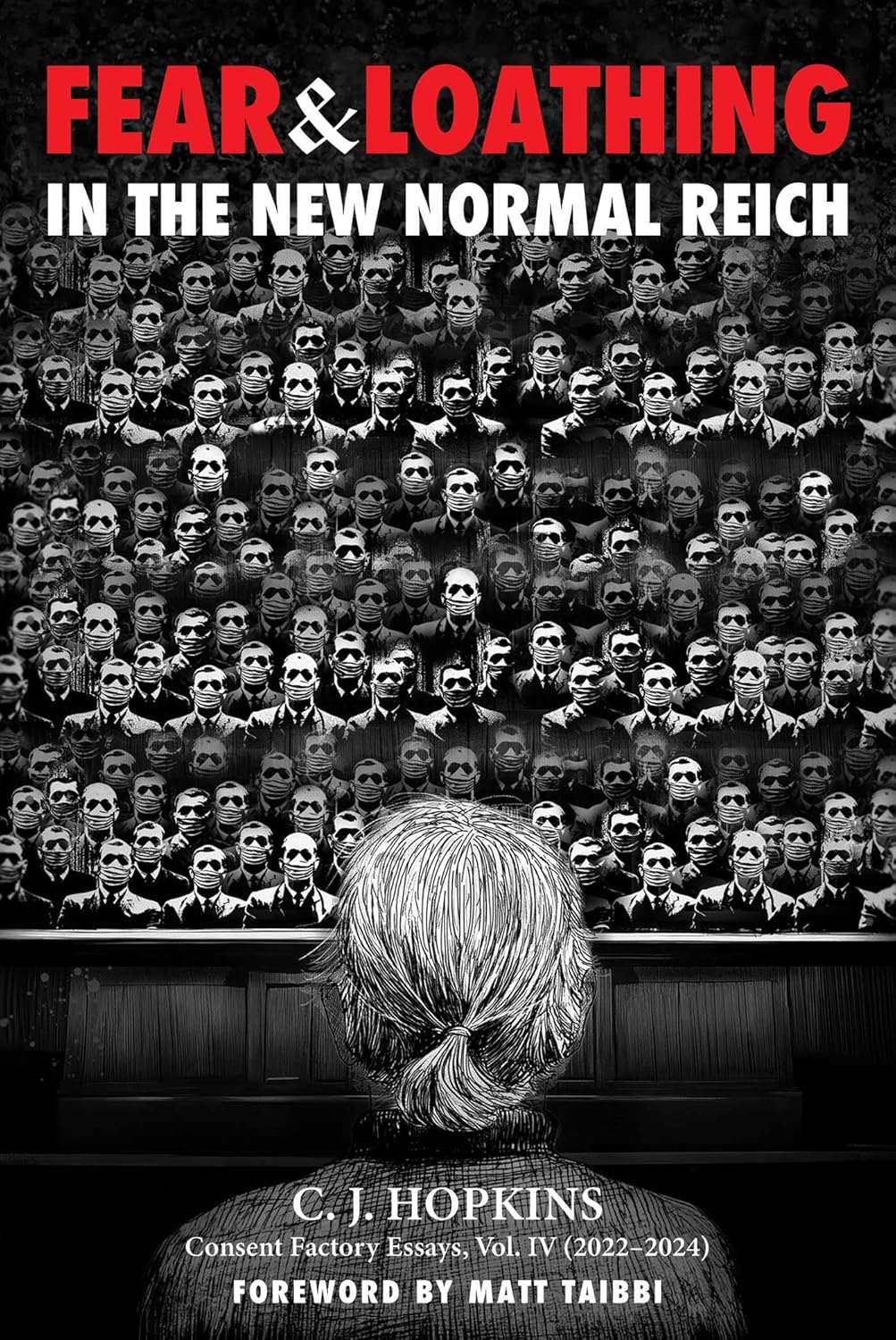 Fear and Loathing in the New Normal Reich: Consent Factory Essays, Vol. IV (2022–2024)
Fear and Loathing in the New Normal Reich: Consent Factory Essays, Vol. IV (2022–2024)
C.J. Hopkins
Foreword by Matt Taibbi
Skyhorse Publishing (April 29, 2025)
If you found yourself as tickled as the shabby 60 Minutes gang were when they tagged along with German commandos while raiding citizens’ homes and hauling them off for the high crimes of online insults, you might just find Fear and Loathing in the New Normal Reich to be the Reich stuff. Or at least your knee-slapping totalitarian cup of WTF.
It surely helps that Hopkins is a Swiftian satirist, playwright, and novelist—his critically acclaimed novel, Zone 23, is being republished—because, volk, you couldn’t make this up (or live it down). The latest Consent Factory essays are Kafkaesque and, by turns, hilarious and horrific—much like that 60 Minutes segment itself. These essays chronicle Hopkins’s Kafkaesque prosecution in Germany for tweeting the cover art of the very book that will hopefully soon be in your insulting, treasonous hands. The author’s Alice in Bundestag adventures in the German legal system—he was pronounced guilty without a trial, then acquitted, then ‟unacquitted”—make for rage-and-gallows-humored reading. (Read it and weep, hopefully before your neighborhood dawn raid.) Hopkins’s battle to defend his right to freedom of speech and artistic expression became an international cause célèbre.
Hopkins has been called a modern Jeremiah by another old school leftist: Robert F. Kennedy Jr. “No other prophet,” said RFKJ, “has described the strategies or predicted the perils of the emerging totalitarianism with such persistence and eloquence.”
Unlike Jeremiah, “the weeping prophet,” Hopkins’s acerbic, absurdist, inconvenient truth diaries remind us that it only hurts when you stop laughing.
Bless him for that, and God bless us all.
Book of the Week
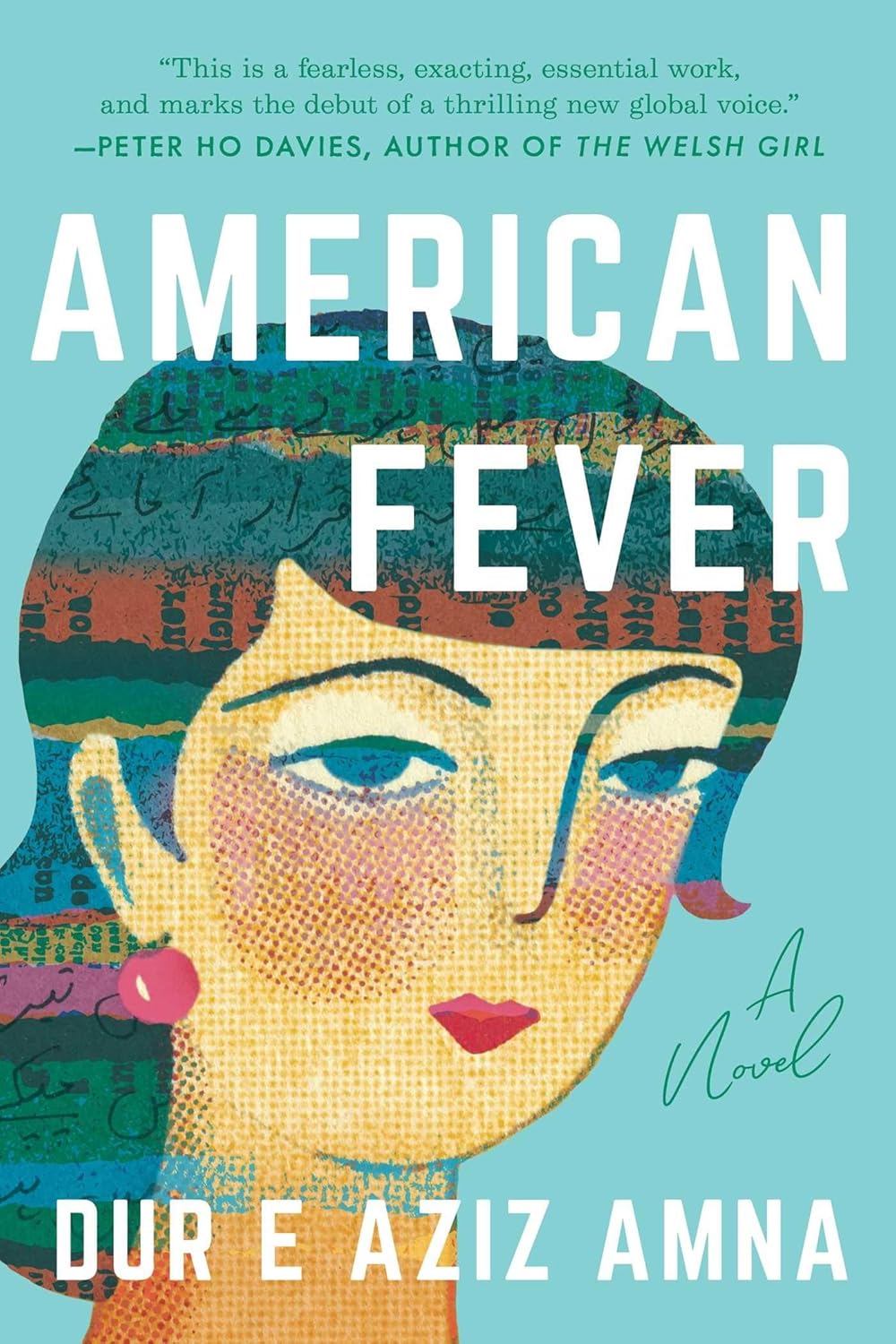 American Fever: A Novel
American Fever: A Novel
Dur e Aziz Amna
Arcade (March 4, 2025)
Dur e Aziz Amna grew up in Rawalpindi, Pakistan, and now lives in New Jersey, USA. Her work has appeared in the New York Times, Financial Times, and Longreads, among others. She won the 2019 Financial Times / Bodley Head Essay Prize, with an e-book publication by Penguin, and was longlisted for the Sunday Times Audible Short Story Award 2020. She graduated from Yale College and the Helen Zell Writers’ Program at the University of Michigan. American Fever is her debut novel.
WINNER OF THE ASIAN/PACIFIC AMERICAN AWARD FOR LITERATURE
“A funny and affecting novel…a wonderful new spin on the coming-of-age story. A smart, charming debut.”—Kirkus, starred review
“A fascinating mix of immigrant tale, coming-of-age narrative, and cultural exposition…tackling some of the big migration questions of home and identity.”—Booklist
“Dur E Aziz Amna has written an extraordinary coming-of-age story showcasing the experiences of a Pakistani Muslim girl coming to America. The novel uses brilliant storytelling to immerse readers and sheds light on the realities of what it is like being a foreigner living in a rural American town and the harsh emotional tension it entails.”—From the citation for the Asian/Pacific American Award for Literature
An Excerpt from American Fever
By God, I had planned to keep it to myself and God. But then the sheets speckle red. Blood, like pomegranate jewels, spots the pillowcase.
It’s the night of Kelly’s wedding. The Pacific Northwest has received a flurry of snow, and as I get out of bed to gargle away the metal from my mouth, I wonder how the drops of red will look on the pristine white of the patio. I wonder if the blood means the disease is now severe, even lethal. Mostly, I wonder how much of this is America’s doing.
*
In the morning, I go out to the living room, where Kelly and Ethan are nursing their coffees, clearly hungover. I tell Kelly she has to take me to the doctor. She still has mascara on from last night.
“Can this wait, Hira?”
I shake my head, tell her it must be today, and my host mother’s face sets into annoyance, which is doubly unfortunate because she and I shared a tender moment last night, the kind of thing that has become a rarity of late. This must not be how she and Ethan planned to spend the first morning of their marriage, but I can’t drive and she is the adult in charge, so this is how it has to be.
In the car ride to the doctor’s, I try to make conversation, telling her I had a great time attending my first American wedding. Kelly loves it when I posit myself as a virgin to America, so that cheers her up a bit. I also mention that I spoke with Ali on the phone after the party.
“So are you two dating now?”
“He lives in New York. I’m going back to Pakistan in five months.”
“Yes, but life is long,” she says. “And you’re smart. I’ll be shocked if you don’t find your way back to America.”
“You’re assuming I want to.”
See, that’s my problem. Kelly’s doing me a favor by driving me around the day after her wedding. Why can’t I keep my mouth shut?
“Well,” she says, frowning. “They do say it’s the land of opportunity.”
Kelly lives in rural Oregon, where the state of opportunity is such that I haven’t been able to find an afterschool job in five months. But it’s 2011, America is still king of the world, the cool guy’s in the White House, and Kelly can’t comprehend the rest of the world not clamoring for these shores.
“I just hope you see your own potential,” she continues. “If you remain in Pakistan, I’ll always worry about your safety.”
Again, it’s 2011 and Americans are worried about everyone else’s safety, sated in the knowledge that their nook of the world is far safer than elsewhere, although don’t tell them why that might be. History is what happens in other places. America transcends it. This will all change, but at the time I can merely nod.
“Leaving home isn’t easy,” I say, offering my own banality in response to hers.
“And you’ve already done it at such a young age,” she replies, upbeat, as we take the Eugene exit. “Mark my words, you’ll be back in no time. My mother tells me that the first time she returned to Hamburg, she cried every morning for California.”
“Did you ever ask her how many times she’s cried for Hamburg?”
Kelly sighs. I am so bloody difficult.
“She is much happier here.”
I pinch back my tongue and change the subject to the honeymoon. Kelly and Ethan are leaving for Hawaii next week.
But I don’t buy it, that thing she says about her mother. Of course, one can be happy anywhere—certain zip codes help and yet none are necessary—but it is Kelly’s certainty that irks me. Her mother must have done what many emigrants do—create neat narratives for their children, flimsy accounts of one-way movement they then begin to internalize. A lie told often enough becomes the truth. And perhaps these accounts are not lies but simply omissions that elide over how home is forever that other place, the first one to drive you to despair, the lover you took before learning to externalize the deeds of the world. It is the sole landscape of dreams, the only place that will ever convince you that its failings, its bounties, its excesses, and caresses are all your own. After all, where does it end and you begin?
*
The doctor is a lean man with suspiciously white teeth who asks me to repeat my name.
and I smile as if I haven’t heard that a hundred times already. I tell him about the cough that sits like a nail in my throat, the fever that comes and goes, the fatigue that burrows into my body each afternoon. He nods.
“How long have you had the cough?”
“Three months.”
He raises his eyebrows.
“And you’re just seeing someone now?”
“I thought it was a winter cold.”
He shakes his head in disappointment, typing away at his computer.
“Also,” I begin, because it is no longer a thing I can keep to myself and God. “I coughed up blood last night.”
The doctor swivels in his chair to face me.
“Blood?”
Kelly looks up from her phone.
“You didn’t tell me that, Hira.”
“I just saw it this morning.”
“Do you have night chills?” the doctor asks.
“Yes.”
“Productive cough?”
“Productive?”
“Is there phlegm?”
“Yes.”
He glances down at my file.
“It says here you are from . . . Pakistan?”
I nod.
“How long have you been in America?”
“Five months.”
“Were you sick while you were in Pakistan?”
Not exactly, is the answer.
“No,” I tell the doctor, my eyes falling to the faint scar on my arm.
He writes down some tests, looking grim. I take the elevator to the lab, where the nurse asks me to cough vigorously into a tube. Then she ties a tourniquet around my arm and feels for a promising vein. I look away towards the window, which overlooks low-lying buildings flanked by fir. Spencer Butte sits in the distance under a blanket of snow. When I arrived in Oregon last summer, evenings would linger forever, the sky full of pink promise even at dinnertime. Now, it is not yet four but the sun has already grown meek, leaving behind the unmistakable blue of dusk. Perhaps this is the only thing common between here and home— the cruelty of a January evening.
“The nurse will call tomorrow. Let’s hope for the best,” the doctor says when I return to his office, looking very much like he is hoping for no such thing.
Kelly is quiet in the car. I wonder if I should call Ali when I get home. What will he say? That I shouldn’t assume the worst, let the tests come back, it might not be what I think it is—the sort of stuff people say to buy time to react to someone else’s misery.
As for my parents, I decide I’ll wait till the next day. After the nurse has called and confirmed what I already sense is true, and I have thanked her and she has hung up, I will not put down the receiver but instead dial that +92 home. And I will tell my parents, with the certainty of iron, that I’m terribly sick, and it’s their fault.
